Co-Curriculum Activities
| Particulars | Description |
| Activity: | Industrial Visit |
| Sub Activity: | Industrial Visit to Automation Expo |
| Title: | Industrial Visit to Automation Expo |
| Organized by: | Department of Computer Engineering |
| Venue: | NESCO, Goregaon East |
| Date: | 25thAugust, 2023 |
| Time: | 1 PM to 5 PM |
| Objective of event: | 1.Demonstrate an ability to identify/ create modern engineering tools, techniques and resources 2.Demonstrate an ability to identify/ create modern engineering tools, techniques and resources 3.Demonstrate an ability to identify changing trends in engineering knowledge and practice 4.Demonstrate an ability to identify and access sources for new information |
| POs mapped: | PO5: Modern Tool Usage PO12: Life-Long Learning |
| Targeted Participants: | Students of Department of Computer Engineering |
| Total Participants: | 26 |
| Content of the activity: | Automation Expo is the biggest expo for the entire South-East Asian Region for showcasing the latest innovations and providing opportunities galore to network with the best technical minds in the industry. There has been a phenomenal increase in the number and quality of exhibitors as well as visitors from across the globe. Companies from Indonesia, China, Taiwan, Singapore, Japan, South Korea, Canada, Switzerland, Denmark, Germany and Italy participate each year to reach out to the Indian market. |



| Particulars | Description |
| Activity: | Seminar/Workshop |
| Sub Activity: | Workshop (one day) |
| Activity level: | College |
| Title: | API Development by Postman Student Expert |
| Organized by: | CSI Committee in Collaboration with AIML Club and Web Development Club |
| Venue: | Lab no 307, 502, 505 & 507, 3rd& 5th Floor, SLRTCE |
| Date: | 9th February, 2024 |
| Time: | 1 PM |
| Objective of event: |
|
| PO’s Mapped: | PO3:Design/Development of Solutions, PO5: Modern tool usage PO9: Individual and Team work and PO12: Life-long learning. |
| Targeted Participants: | SE and TE students of SLRTCE |
| Total Participants: | 68 |
| Speaker: | Mr. Manas Nanivadekar Designation:Google DSC | Quant Developer | Postman Student Leader | Full Stack Developer |
| Content of the activity: | The objective of this workshop is to get understanding of the API development, hands on experience of API development, guidance for popular tools and frameworks used in API development. |
| Methodology used: | PowerPoint Presentation Hand on |







| Particulars | Description |
| Activity: | Event |
| Sub Activity: | National Event |
| Activity level: | National |
| Title: | Hackhaven 1.0 hackathon |
| Organized by: | CSI Committee of SLRTCE |
| Venue: | Lab no 307,306, 502, 503, 505,506, 508 3rd& 5th Floor, Seminar Hall Ground Floor SLRTCE |
| Date: | 18th , 19th (Online) and 20th March (Offline Judging Round), 2024 |
| Time: | 48 hrs. Hackathon Competition and Judging round on 20th march 2024 from 10am Onwards |
| Objective of event: |
|
| PO’s Mapped: | PO1: Engineering Knowledge,PO2: Problem Analysis, PO3:Design/Development of Solutions,PO4: Conduct investigations of complex problems,PO5: Modern tool usage PO6:The engineer and society, PO7:Environment and sustainability, PO8:Ethics,PO9: Individual and Team work, PO10: Communication, PO11: Project management and Finance and PO12: Life-long learning. |
| Targeted Participants: | Students from different engineering colleges of all over India |
| Total Participants: | 250 |
| Judges for Different Domains | Web Development: Mr. Roopam Mishra Founder & Design Strategist of Phionike
App Development: Mr. Ashraf Kazi, Project Management, CMSS
AI/ML: Dr. D. J. Jaiswal Dean Academics of SFIT, Professor (Electronics & Telecommunication Department)
Blockchain: Mr. NandakumarVijayamma Software Consultant
Cybersecurity: Mr. Akram Shaikh Assisstant Manager, Grant Thomton Bharat LLP
IoT & Robotics Mr. Rohit Pandey Founder and CEO of Airfly |
| Content of the activity: |
The objectives of a hackathon include fostering innovation, problem-solving, skill development, and community building through collaborative, time-bound projects. |
| Methodology used: | Registration – Devfolio Provide Problem Statements – Email Abstract Submission – Google Forms Take Periodic Updates – Discord Judging Round – Power Point Presentation, Live Demo of Project, Google Meet for Online Presentation |






| Particulars | Description |
| Activity: | Seminar/Workshop |
| Sub Activity: | Workshop |
| Activity level: | College |
| Title: | Workshop on High Performance Computing |
| Organized by: | CSI Committee in collaboration with ITSA & Higher Education Cell of SLRTCE |
| Venue: | Lab no 507 5th Floor, SLRTCE |
| Date: | 1st & 2nd April, 2024 |
| Time: | 10:15 to 4:15 PM |
| Objective of event: |
|
| PO’s Mapped: | PO3: Design/Development of Solutions, PO5: Modern tool usage, PO9: Individual and Team Work and PO12: Life-long learnings |
| Targeted Participants: | Second year to Final year students of all branches. |
| Total Participants: | 35 |
| Trainer Details | Mrs. Rupali Pashte Designation: HPC Master Trainer, from CDAC, Assistant Professor, Department of Information Technology, SLRTCE |
| Content of the activity: | Understanding of what HPC is, its significance, and its applications across various domains such as scientific research, engineering, finance, healthcare. It will also equip them with the skills and knowledge needed to harness the full potential of HPC resources for their research or computational tasks. |
| Methodology used: | PowerPoint Presentations Hands on by trainer |
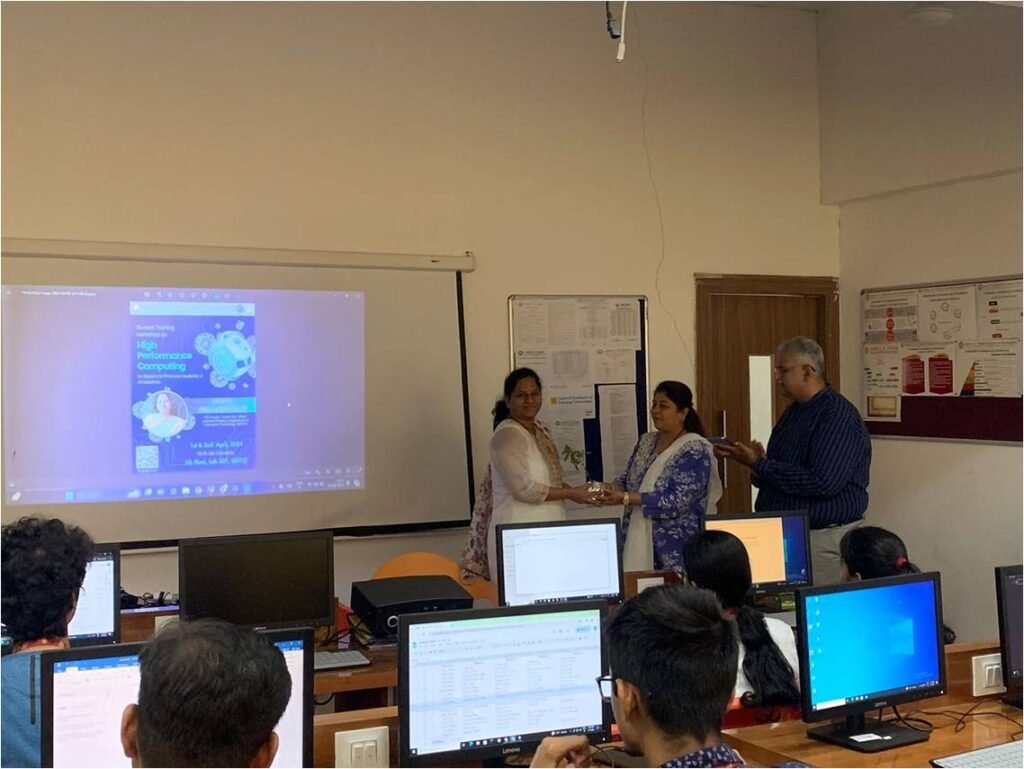
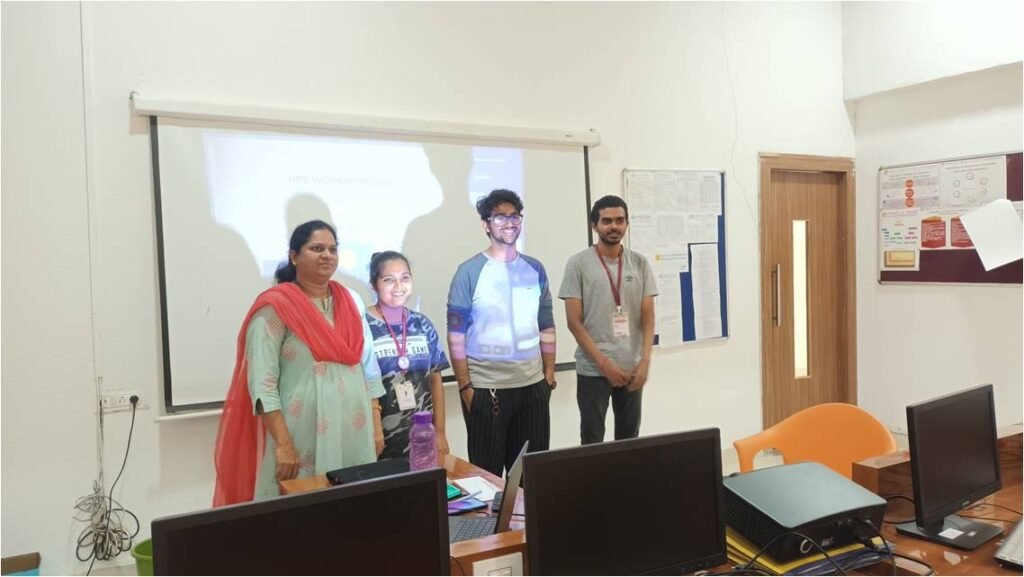
| Particulars | Description |
| Activity: | Seminar/Workshop |
| Sub Activity: | Seminar (one day) |
| Activity level: | Department |
| Title: | MBA-Higher Education Opportunities |
| Organized by: | Department of Computer Engineering |
| Venue: | Seminar Hall, Ground Floor, SLRTCE |
| Date: | 21st August, 2023 |
| Time: | 11 AM |
| Objective of event: |
|
| Outcome of event: |
|
| Targeted Participants: | SE, TE and BE students of Department of Computer Engineering |
| Total Participants: | 106 |
| Speaker: | Mr. Harsh Tiwari Alumni, Shree L R Tiwari College of Engineering, Mira road (E), Student of Symbiosis Institute of Business Management, Nagpur. |
| Content of the activity: | The objective of this seminar is to enable the students for the preparation of MBA studies and to make them understand about the opportunities after pursing MBA studies. |
| Methodology used: | PowerPoint Presentation, Discussion |
| Particulars | Description |
| Activity: | Research Methodology |
| Sub Activity: | Seminar (one day) |
| Activity level: | Institution’s Innovation Council of SLRTCE |
| Title: | Research Methodology |
| Organized by: | Department of Computer Engineering |
| Venue: | Lecture Room – 301, SLRTCE |
| Date: | 26th July, 2023 |
| Time: | 1 PM |
| Objective of event: | 1. To understand some basic concepts of research and its methodologies. 2. To address the issues inherent in selecting a research problem and discuss the techniques and tools to be employed in completing a research project. 3. To enable the students to prepare report writing and framing Research proposals. |
| Outcome of event: |
|
| Targeted Participants: | SE, TE and BE students of Department of Computer Engineering |
| Total Participants: | 70 |
| Speaker: | Dr. Vinayak Shinde Associate Professor, Department of Computer Engineering, Shree L R Tiwari College of Engineering |
| Content of the activity: | concepts of research and its methodologies and how to apply these to one’s own work to manage projects and in multidisciplinary environments. |
| Methodology used: | Power Point Presentation Presentation with notes and comments Discussion |
| Particulars | Description |
| Activity: | Seminar on Introduction to Quantum Computing held by CSI |
| Sub Activity: | Quiz of basic concepts of Quantum Computing |
| Activity level: | College |
| Title: | Introduction to Quantum Computing |
| Organized by: | CSI committee of SLRTCE |
| Venue: | Seminar Hall, Ground Floor, SLRTCE |
| Date: | 28st August, 2023 |
| Time: | 1:30 PM Onwards |
| Objective of event: |
|
| Outcome of event: | 1. To understand the basic principles of quantum computing. 2. To understand the between conventional computing and quantum computing. 3. To understand the advantages of quantum computing and its research problems. |
| Targeted Participants: | SE, TE and BE students of SLRTCE |
| Total Participants: | 150 |
| Speaker: | Dr. Kamal Shah Professor, Department of Information Technology, Thakur College of Engineering and Technology |
| Content of the activity: | The objective of this seminar is to understand the concept of quantum computing, why to be interested in quantum computing, its benefits and research problems. |
| Methodology used: | PowerPoint Presentation Discussion |
| Particulars | Description |
| Activity: | Seminar |
| Sub Activity: | Seminar (one day) |
| Activity level: | Department |
| Title: | Seclore Placement Guidance |
| Organized by: | Department of Computer Engineering |
| Venue: | Online via Google Meet |
| Date: | 16th August, 2023 |
| Time: | 3 PM |
| Objective of event: |
|
| Outcome of event: |
|
| Targeted Participants: | BE students of Department of Computer Engineering |
| Total Participants: | 72 |
| Speaker: | Mr. Jainesh Singh Senior Product Engineer at Seclore |
| Content of the activity: | The objective of this seminar is to guide the final year students for the preparation of upcoming Seclore Placement Drive. |
| Methodology used: | Discussion |
| Particulars | Description |
| Activity: | Technical |
| Sub Activity: | Webinar |
| Activity level: | Inter Department |
| Title: | OutSystems Introductory Talk |
| Organized by: | Department of Computer Engineering |
| Venue: | online |
| Date: | 2nd February, 2022 |
| Time: | 10.30 am To 11:45 am. |
| Objective of event: |
|
| Expected Outcomes of event : |
|
| Targeted Participants : | S.E., T.E, B.E |
| Total Participants: | 120 |
| Speaker: | Mr. Yashraj Nayak ( Community Growth Manager (APAC) at OutSystems, Bengaluru, Karnataka, India.) |
| Content of the activity : | Getting started with basic knowledge of computer programming language |
| Methodology used: |
|
| Particulars | Description |
| Activity: | Technical |
| SubActivity: | Webinar |
| Activitylevel: | Department of Computer Engineering |
| Title: | Huffman Encoding |
| Organized by: | DepartmentofComputerEngineering |
| Venue: | Online(GoogleMeet) |
| Date: | 26thNovember,2021 |
| Time: | 9AMto10 AM |
| Objectiveofevent: |
|
| Out comeo fevent: | Students should be able to perform Data Compression on given data using Huffman Encoding. |
| Targeted Participants: | SEstudents |
| Total Participants: | 60 |
| Speaker: | Mrs. Dipali Patil |
| Particulars | Description |
| Activity: | Technical |
| Sub Activity: | webinar |
| Activity level: | Inter Department |
| Title: | Mobile IP and VPN |
| Organized by: | Department of Computer Engineering |
| Mode of Conduct: | Online (google meet) |
| Date: | 5/10/2021 |
| Time: | 9.0am :11.20am |
| Objective of event: | To understand what is mobile IP and VPN. To understand technology behind IP and VPN |
| Expected Outcomes of event : | To understand basic difference between wired and wireless network To understand technology behind IP and VPN |
| Targeted Participants : | T.E |
| Total Participants: | 74 |
| Speaker: | Mrs. Deepali Patil, ME(IT), UoM, Assistant Professor, Information Technology Department, SLRTCE, Mira Road |
| List Of distinguished guest present during opening ceremony: | MrsAabha A Patil ( Assistant Professor, Department of computer engineering) |
| List of distinguished guest present during closing ceremony: | MrsAabha Patil (Assistant Professor, Department of computer engineering) |
| Content of the activity : | Presentation and discussion on VPN .wireless network, IP,mobile IP |
| Methodology used: | 1)Powerpoint presentation. 2)Discussion |
| Particulars | Description |
| Activity: | Technical |
| Sub Activity: | Webinar |
| Activity level: | Inter Department |
| Title: | Future Network 5G |
| Organized by: | Department of Computer Engineering |
| Mode of Conduct: | Online (google meet) |
| Date: | 5/10/2021 |
| Time: | 10.20am :11.20am |
| Objective of event: |
|
| Expected Outcomes of event : |
|
| Targeted Participants : | B.E |
| Total Participants: | 39 |
| Speaker: | Mrs. Sonali Padalkar, BE(EXTC), UoM, Assistant Professor, Electronics and comm Department,SLRTCE,Mira Road |
| List Of distinguished guest present during opening ceremony : | Mrs.Dipali K Bhole( Assistant Professor, Department of computer engineering) |
| List of distinguished guest present during closing ceremony: | Mrs.Dipali K Bhole( Assistant Professor, Department of computer engineering) |
| Content of the activity : | Presentation and discussion on 5G Network |
| Methodology used: |
|
| Sub Activity: | Webinar |
| Activity level: | Inter Department |
| Title: | Java Database Connectivity |
| Organized by: | Department of Computer Engineering |
| Venue : | Online |
| Date: | 7-10-2021 |
| Time: | 3.00 am to 4 pm |
| Objective of event: |
|
| Expected Outcomes of event : | Students will be able to perform Java and SQL connectivity using JDBC |
| Targeted Participants: | T.E |
| Total Participants: | 38 |
| Speaker: | Mrs. Aarti Puthran, Assistant Professor, Shree L R Tiwari College of Engineering and Technology |
| Methodology used: |
|
| Sub Activity: | Webinar |
| Activity level: | Inter Department |
| Title: | Inferencing inAI |
| Organized by: | Department of Computer Engineering |
| Venue: | Online |
| Date: | 8-10-2021 |
| Time: | 3.00 am to 4 pm |
| Objective of event: | 1. Understand the syntax for representation 2. Able to represent in FOL Objective of event 3. Able to write in FOL 4. Represent the data for the machine to infer |
| Expected Outcomes of event : | 1. Student got brief introduction about Inferencing 2. Students got to know about the BNF process. 3. Write a statement in FOL form. 4. Student understood the importance of data inferencing and its role in AI ExpertSystem |
| Targeted Participants : | BE |
| Total Participants: | 39 |
| Speaker: | Mr. Sunil Yadav, ME(1T), UoM (Assistant Professor in SLRTCE, Information Technology Department) |
| Content of the activity: | 1.Expert System in AI What is AI? Types of AI Introduction to Expert System(ES) Use of Inference in ES 2.Introduction to Inference What is inference Need of inference Types of inference Syntax & Semantics |
| Methodology used: | 1) Powerpoint presentation. 2) Presentation with notes and comments. 3)Discussion |
| Activity: | Technical |
| Sub Activity: | Workshop |
| Activity level: | Inter Department |
| Title: | Advanced Python |
| Organized by: | Department of Computer Engineering |
| Venue: | Lab No.311 & 312 ( 3rd floor ,SLRTCE) |
| Date: | 21st ,22nd 23rd and 24th -August-2019 |
| Time: | 9.00pam -5.00pm |
| Objective of event: |
|
| Expected Outcomes of event : | Problem solving and programming capability |
| Targeted Participants : | CSI Student |
| Total Participants: | 40 |
| Speaker: | Dr. Prabhu Ramachandran. Dept. of Aeronautics of Engineering (FOSSEE, IITB) |
| List Of distinguished guest present during opening ceremony : | Dr. Vinayak Shinde (H.O.D of department of computer engineering). |
| List of distinguished guest present during closing ceremony: | Dr. Vinayak Shinde (H.O.D of department of computer engineering) |
| Content of the activity : |
|
| Methodology used: |
|
| Activity: | Technical |
| Sub Activity: | Workshop |
| Activity level: | Inter Department |
| Title: | Basic programming using python |
| Organized by: | Department of Computer Engineering |
| Venue: | Lab No.311 & 312 ( 3rd floor ,SLRTCE) |
| Date: | 7th,8th and 9th August 2019 |
| Time: | 9.00pam -5.00pm |
| Objective of event: | The course is designed to provide Basic knowledge of Python. Python programming is intended for software engineers, system analysts, program managers and user support personnel who wish to learn the Python programming language. |
| Expected Outcomes of event : | Problem solving and programming capability |
| Targeted Participants : | T.E |
| Total Participants: | 55 |
| Speaker: | Dr. Prabhu Ramachandran. Dept. of Aeronautics of Engineering (FOSSEE, IITB) |
| List Of distinguished guest present during opening ceremony : | Dr.Vinayak Shinde (H.O.D of department of computer engineering). |
| List of distinguished guest present during closing ceremony: | Dr.Vinayak Shinde (H.O.D of department of computer engineering) |
| Content of the activity : |
|
| Methodology used: |
|

| Particulars | Description |
| Activity: | Technical |
| Sub Activity: | Workshop |
| Activity level: | Inter Department |
| Title: | Basic programming using python |
| Organized by: | Department of Computer Engineering |
| Venue: | Lab No..312 ( 3rd floor ,SLRTCE) |
| Date: | 18th,19th and 20th March 2019 |
| Time: | 9.00pam -5.00pm |
| Objective of event: | The course is designed to provide Basic knowledge of Python. Python programming is intended for software engineers, system analysts, program managers and user support personnel who wish to learn the Python programming language. |
| Expected Outcomes of event : | Problem solving and programming capability |
| Targeted Participants : | T.E |
| Total Participants: | 43 |
| Speaker: | Mr. Akshan Dhoke (FOSSEE, IITB) |
| List Of distinguished guest present during opening ceremony : | Dr.Vinayak Shinde (H.O.D of department of computer engineering). |
| List of distinguished guest present during closing ceremony: | Dr.Vinayak Shinde (H.O.D of department of computer engineering) |
| Content of the activity : |
|
| Methodology used: |
|
| Particulars | Description |
| Activity: | Technical |
| Sub Activity: | Seminar |
| Activity level: | Inter Department – For CSI Students. |
| Title: | Artificial Intelligence |
| Organized by: | Department of Computer Engineering |
| Venue: | Classroom – 313 ( 3rd floor ,Slrtce) |
| Date: | 26-07-2019 |
| Time: | 10.00am -12.00pm |
| Objective of event: |
|
| Expected Outcomes of event : |
|
| Targeted Participants : | CSI Student Members |
| Total Participants: | 50 |
| Speaker: | Mr.Sanjeev Gupta, (Team lead for SDAC InfoTech) |
| List Of distinguished guest present during opening ceremony : | Dr.Vinayak Shinde (H.O.D of department of computer engineering). |
| List of distinguished guest present during closing ceremony: | Dr.Vinayak Shinde (H.O.D of department of computer engineering) |
| Content of the activity : |
|
| Methodology used: |
|
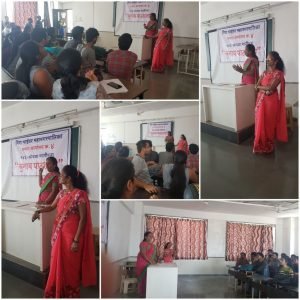
| Particulars | Description |
| Activity: | Non-Technical |
| Sub Activity: | Seminar |
| Activity level: | Inter Department |
| Title: | Chunav Pathashala |
| Organized by: | Department of Computer Engineering |
| Venue: | Class Room-313 ( 3rd floor ,SLRTCE) |
| Date: | 18-03-2019 |
| Time: | 10.15am -12.30pm |
| Objective of event: | To make the students aware of the voting system and importance of vote. |
| Expected Outcomes of event : |
|
| Targeted Participants : | T.E,B.E |
| Total Participants: | 45 |
| Speaker: | Mrs. Sangeeta Pathak, Mrs.Snehal Tambe (senior clerk,Mirabhaynder BMC) |
| List Of distinguished guest present during opening ceremony : | Dr.Vinayak Shinde (H.O.D of department of computer engineering). |
| List of distinguished guest present during closing ceremony: | Dr.Vinayak Shinde (H.O.D of department of computer engineering) |
| Content of the activity : |
|
| Methodology used: |
|
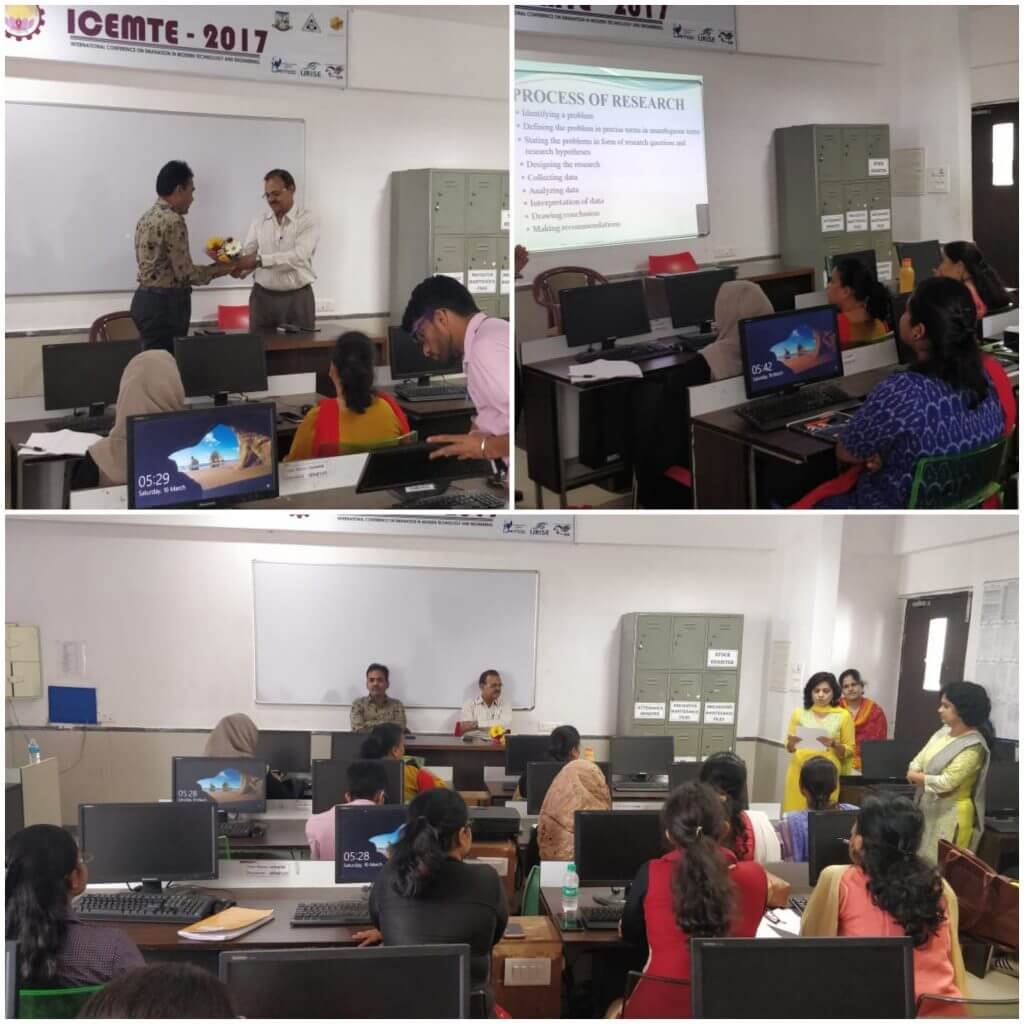
| Particulars | Description |
| Activity: | Technical |
| Sub Activity: | Seminar |
| Activity level: | Inter Department |
| Title: | Digital Signal Processing |
| Organized by: | Department of Computer Engineering |
| Venue: | Lab 312 ( 3rd floor ,SLRTCE) |
| Date: | 16-03-2019 |
| Time: | 12.30pm -1.30pm |
| Objective of event: |
|
| Expected Outcomes of event : |
|
| Targeted Participants : | M.E |
| Total Participants: | 40 |
| Speaker: | Prof.Arun Kulkarni (Assistant Professor ,TSEC Mumbai) |
| List Of distinguished guest present during opening ceremony : | Dr.S.B.Singh (Director,SLRTCE). |
| List of distinguished guest present during closing ceremony: | Dr.S.B.Singh (Director,SLRTCE). |
| Content of the activity : |
|
| Methodology used: |
|
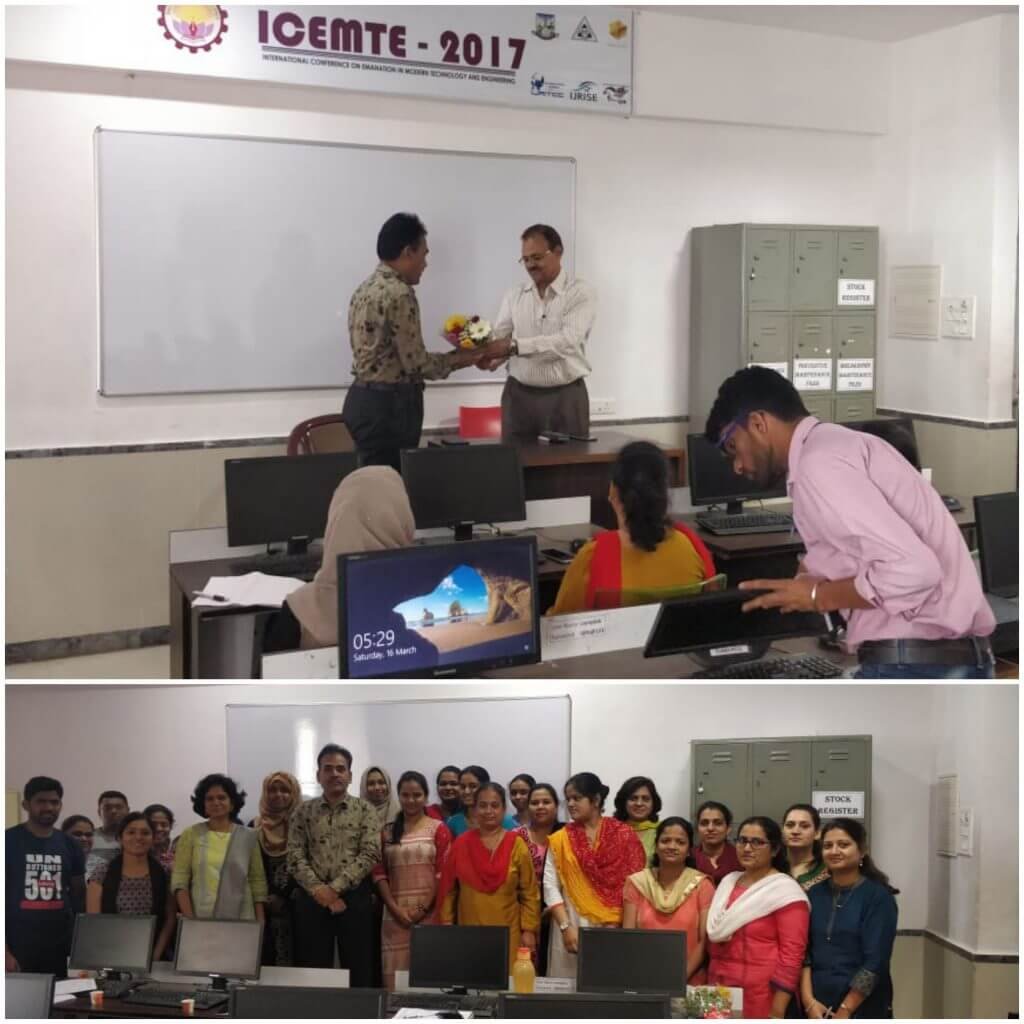
| Particulars | Description |
| Activity: | Technical |
| Sub Activity: | Seminar |
| Activity level: | Inter Department |
| Title: | Research Methodology |
| Organized by: | Department of Computer Engineering |
| Venue: | Lab 312 ( 3rd floor ,Slrtce) |
| Date: | 16-03-2019 |
| Time: | 10.30pm -12.30pm |
| Objective of event: |
|
| Expected Outcomes of event : |
|
| Targeted Participants : | M.E |
| Total Participants: | 25 |
| Speaker: | Prof.Arun Kulkarni (Assistant Professor ,TSEC Mumbai) |
| List Of distinguished guest present during opening ceremony : | Dr.S.B.Singh (Director,SLRTCE). |
| List of distinguished guest present during closing ceremony: | Dr.S.B.Singh (Director,SLRTCE). |
| Content of the activity : | Literature review
|
| Methodology used: |
|
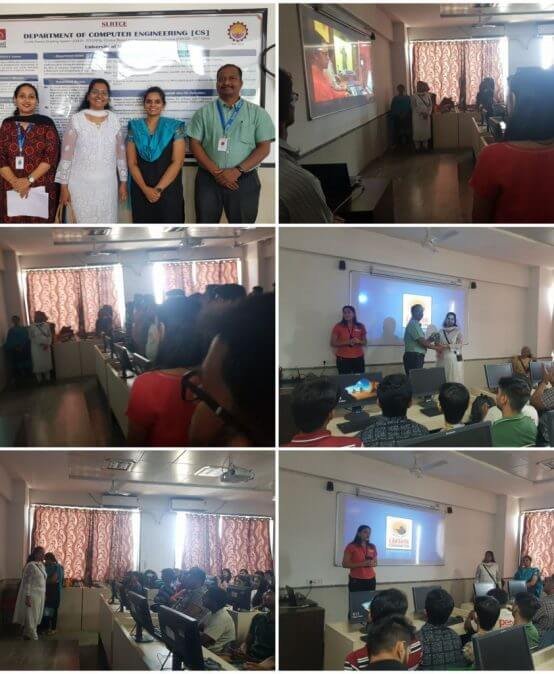
| Particulars | Description |
| Activity: | Non-Technical |
| Sub Activity: | Seminar |
| Activity level: | Inter Department |
| Title: | Kargil shaurya gatha |
| Organized by: | Department of Computer Engineering |
| Venue: | Lab No.312 ( 3rd floor ,Slrtce) |
| Date: | 15-03-2019 |
| Time: | 10.15am -12.30pm |
| Objective of event: | To make the students aware of the countless efforts and sacrifices made by our soldiers for our safety and our nation |
| Expected Outcomes of event : |
|
| Targeted Participants : | T.E,S.E |
| Total Participants: | 91 |
| Speaker: | Mrs.Namrat Shinde (Member and Volunteer,Lakshya Foundation.) |
| List Of distinguished guest present during opening ceremony : | Dr.Vinayak Shinde (H.O.D of department of computer engineering). |
| List of distinguished guest present during closing ceremony: | Dr.Vinayak Shinde (H.O.D of department of computer engineering) |
| Content of the activity : |
|
| Methodology used: |
|
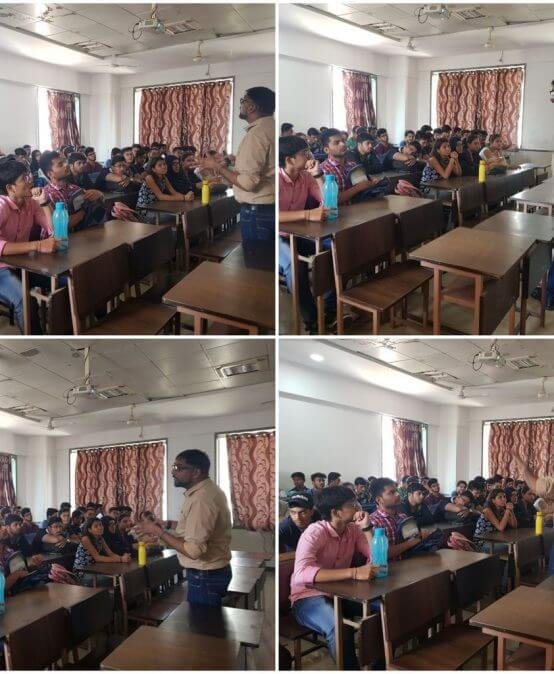
| Particulars | Description |
| Activity: | Technical |
| Sub Activity: | Seminar |
| Activity level: | Inter Department |
| Title: | Certified Professional in Microsoft Azure |
| Organized by: | Department of Computer Engineering |
| Venue: | Classroom 313 ( 3rd floor ,Slrtce) |
| Date: | 13-03-2019 |
| Time: | 12.45pm -1.45pm |
| Objective of event: |
|
| Expected Outcomes of event : |
|
| Targeted Participants : | T.E |
| Total Participants: | 43 |
| Speaker: | Mr. Manish sigh (Trainer and Marketing Head ,ATS InfoTech Pvt.Ltd.) |
| List Of distinguished guest present during opening ceremony : | Dr.Vinayak Shinde (H.O.D of department of computer engineering). |
| List of distinguished guest present during closing ceremony: | Dr.Vinayak Shinde (H.O.D of department of computer engineering) |
| Content of the activity : | Cloud Computing Introduction
|
| Methodology used: |
|
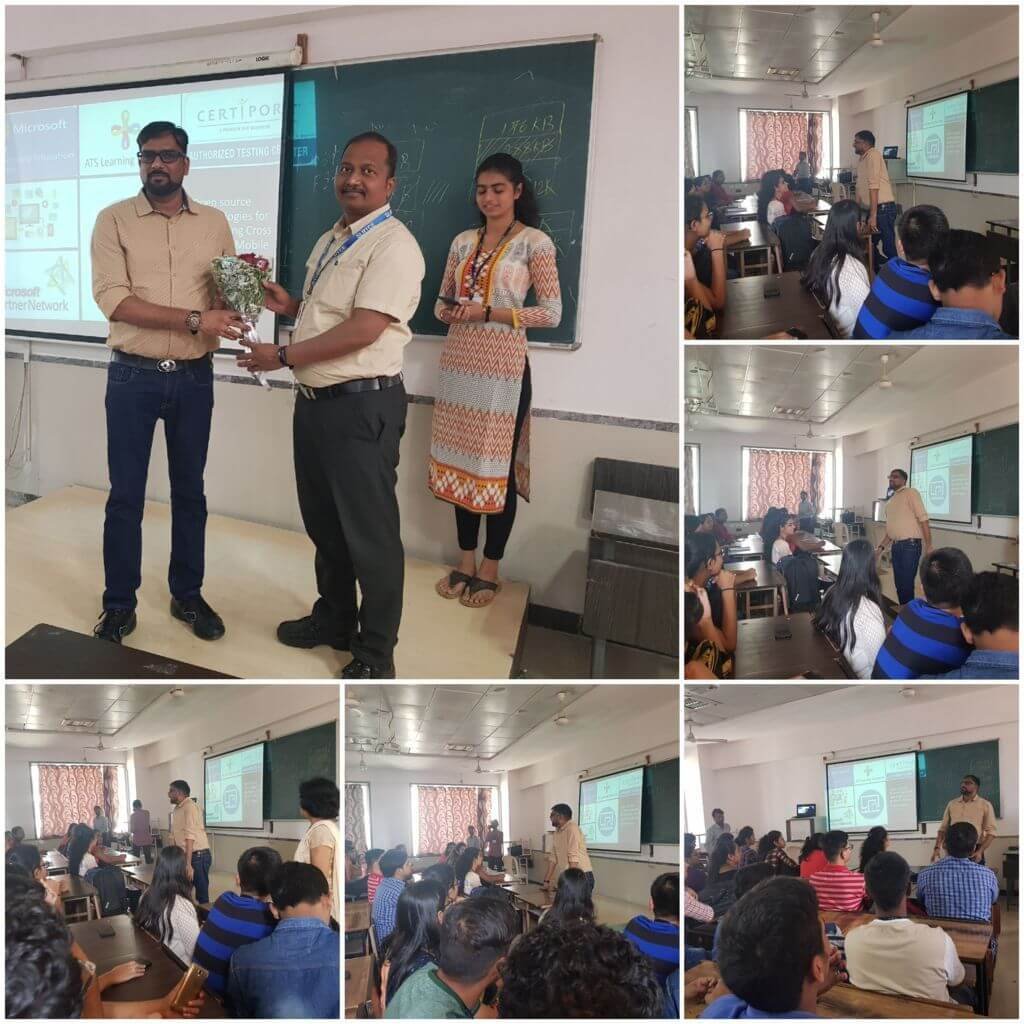
| Particulars | Description |
| Activity: | Technical |
| Sub Activity: | Seminar |
| Activity level: | Inter Department |
| Title: | Cross platform with mobile app. development |
| Organized by: | Department of Computer Engineering |
| Venue: | Classroom 301 ( 3rd floor ,Slrtce) |
| Date: | 13-03-2019 |
| Time: | 11.30am -12.30pm |
| Objective of event: |
|
| Expected Outcomes of event : |
|
| Targeted Participants : | S.E |
| Total Participants: | 59 |
| Speaker: | Mr. Manish sigh (Trainer and Marketing Head ,ATS InfoTech Pvt.Ltd.) |
| List Of distinguished guest present during opening ceremony : | Dr.Vinayak Shinde (H.O.D of department of computer engineering). |
| List of distinguished guest present during closing ceremony: | Dr.Vinayak Shinde (H.O.D of department of computer engineering) |
| Content of the activity : |
|
| Methodology used: |
|
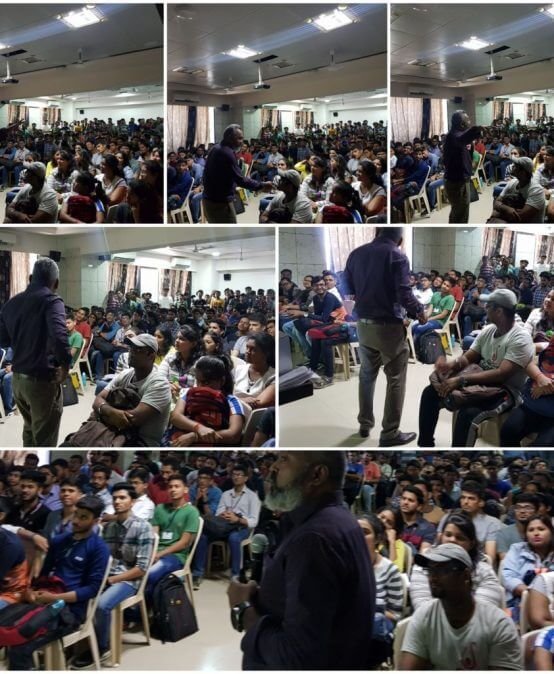
| Particulars | Description |
| Activity: | Non-Technical |
| Sub Activity: | Seminar |
| Activity level: | Inter Department |
| Title: | Personality Development. |
| Organized by: | Department of Computer Engineering |
| Venue: | Seminar hall ( 2nd floor ,Slrtce) |
| Date: | 12-03-2019 |
| Time: | 10.15am -12.30pm |
| Objective of event: | The main objective is to ensure that our students have the personality, exposure, skills, and self-confidence to take on the most urgent challenges and assignments starting from day one of their employment. |
| Expected Outcomes of event : |
|
| Targeted Participants : | T.E,S.E |
| Total Participants: | 91 |
| Speaker: | Mr.Gejo Sreenivasan (Student Mentor ,CL Mumbai) |
| List Of distinguished guest present during opening ceremony : | Dr.Vinayak Shinde (H.O.D of department of computer engineering). |
| List of distinguished guest present during closing ceremony: | Dr.Vinayak Shinde (H.O.D of department of computer engineering) |
| Content of the activity : |
|
| Methodology used: |
|
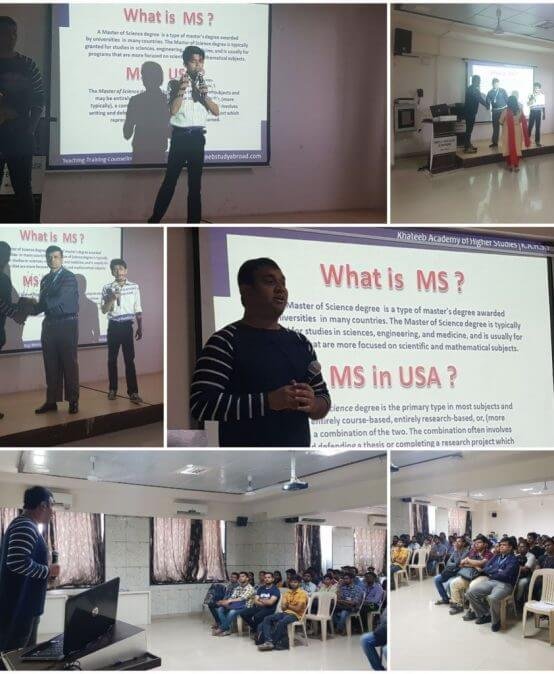
| Particulars | Description |
| Activity: | Non-Technical |
| Sub Activity: | Seminar |
| Activity level: | Inter Department |
| Title: | Study Abroad and GRE |
| Organized by: | Department of Computer Engineering |
| Venue: | Seminar hall ( 2nd floor ,Slrtce) |
| Date: | 05-03-2019 |
| Time: | 10.15am -12.30pm |
| Objective of event: |
|
| Expected Outcomes of event : |
|
| Targeted Participants : | T.E,S.E |
| Total Participants: | 105 |
| Speaker: | Prof.Junaid Khateeb (Trainer,Author,Consultant) |
| List Of distinguished guest present during opening ceremony : | Dr.Vinayak Shinde (H.O.D of department of computer engineering). |
| List of distinguished guest present during closing ceremony: | Dr.Vinayak Shinde (H.O.D of department of computer engineering) |
| Content of the activity : |
|
| Methodology used: |
|
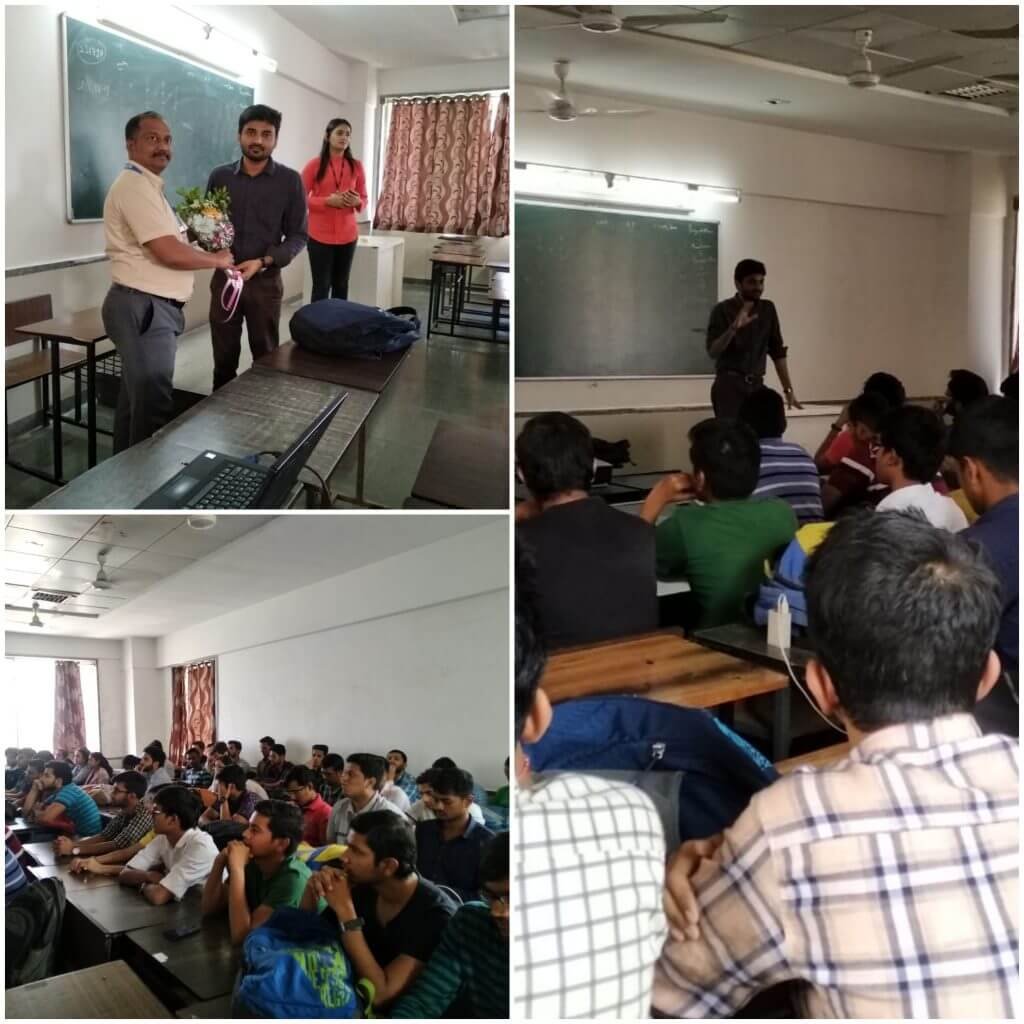
| Particulars | Description |
| Activity: | Technical |
| Sub Activity: | Seminar |
| Activity level: | Inter Department |
| Title: | Artificial Intelligence |
| Organized by: | Department of Computer Engineering |
| Venue: | Classroom .313 ( 3rd floor ,Slrtce) |
| Date: | 17-01-2019 |
| Time: | 1.00pm -2.00pm |
| Objective of event: | 1.Data science by using different Language-Tech Awareness. 2. Artificial Intelligence-Machine Learning Deep Learning Awareness. 3.Current Marketing adaption-19-20 used by multi giant company –case study amazon. |
| Expected Outcomes of event : |
|
| Targeted Participants : | T.E,S.E |
| Total Participants: | 89 |
| Speaker: | Mr.Sanjeev Gupta, (Team lead for SDAC InfoTech) |
| List Of distinguished guest present during opening ceremony : | Dr.Vinayak Shinde (H.O.D of department of computer engineering). |
| List of distinguished guest present during closing ceremony: | Dr.Vinayak Shinde (H.O.D of department of computer engineering) |
| Content of the activity : |
|
| Methodology used: |
|
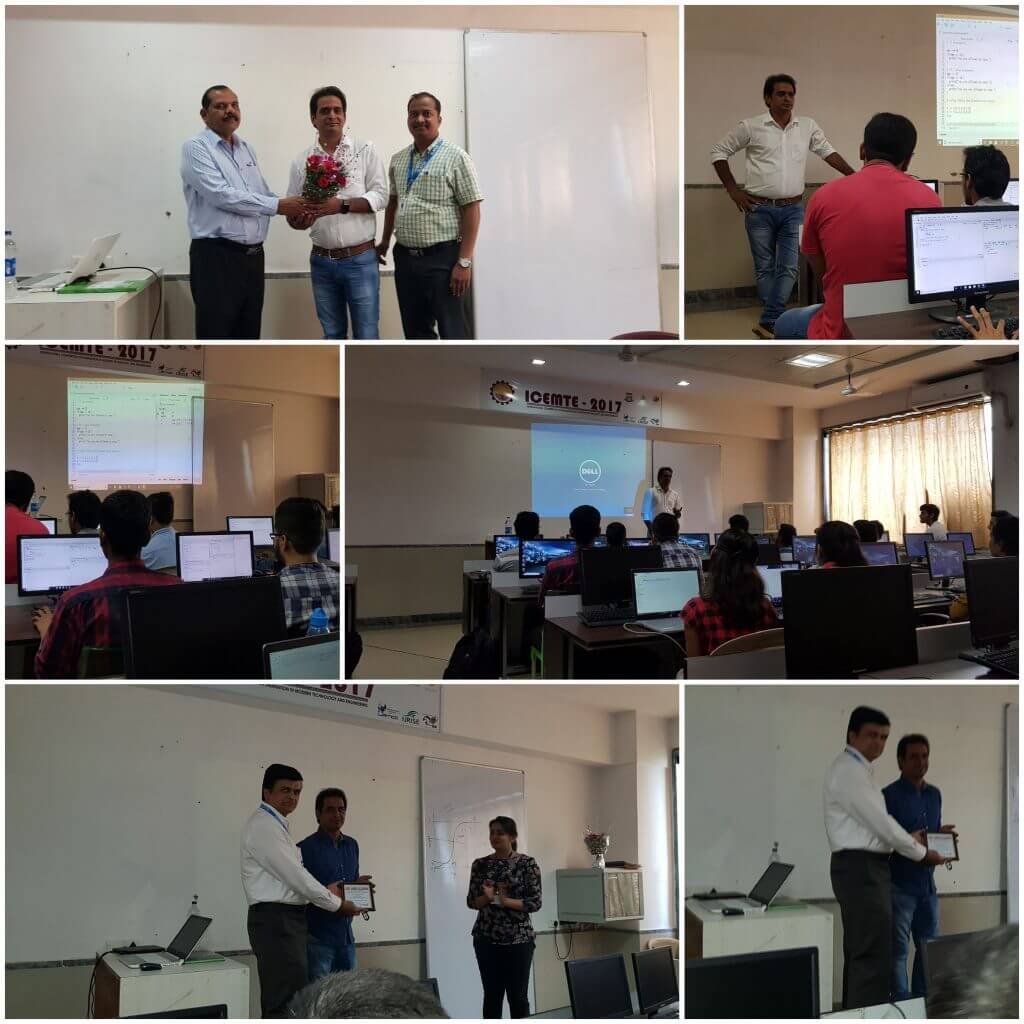
| Particulars | Description |
| Activity: | Technical |
| Sub Activity: | Workshop |
| Activity level: | Inter Department |
| Title: | R for Machine learning |
| Organized by: | Department of Computer Engineering |
| Venue: | Lab No.305 ( 3rd floor ,SLRTCE) |
| Date: | 29-08-2018 And 30-08-2018 |
| Time: | 9.00 am To 5.00 pm. |
| Objective of event: |
|
| Expected Outcomes of event : |
|
| Targeted Participants : | T.E,B.E |
| Total Participants: | 38 |
| Speaker: | Mr.Surendra Mishra, ((BE(CS), UoM ,Senior Analyst, Bank of America, Mumbai,Founder & Tech blogger at (www.cracktechinterviews.com) |
| List Of distinguished guest present during opening ceremony : | Dr .S.Ram Reddy (Principal, S.L.R.T.C.E) , Dr.Vinayak Shinde (H.O.D of department of computer engineering). |
| List of distinguished guest present during closing ceremony: | Prof. Rajesh Gaikwad ( Assistant Professor, Department of computer engineering) |
| Content of the activity : |
|
| Methodology used: |
|
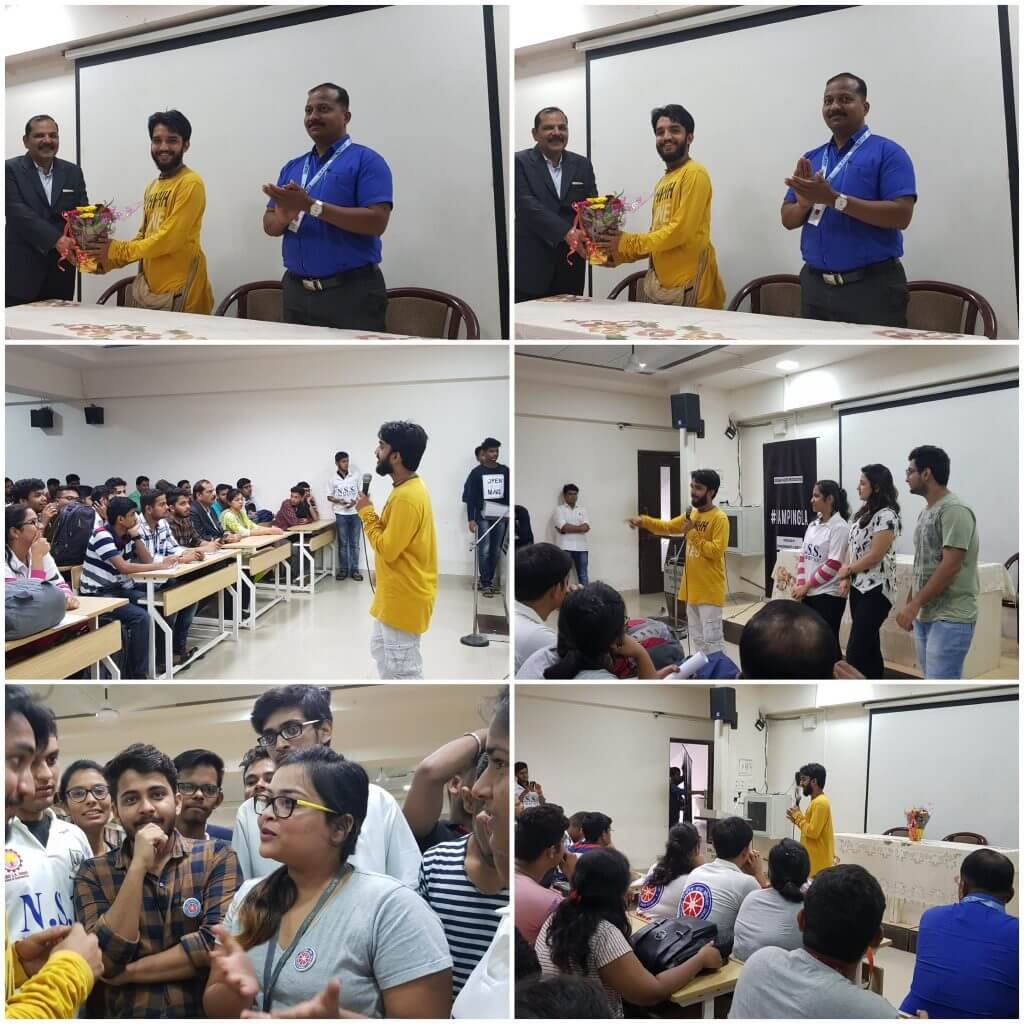
| Particulars | Description |
| Activity: | Non-Technical |
| Sub Activity: | Seminar |
| Activity level: | Inter Department |
| Title: | Eradication of Human Trafficking |
| Organized by: | Department of Computer Engineering |
| Venue: | Seminar hall 311 ( 2nd floor ,Slrtce) |
| Date: | 03-07-2018 |
| Time: | 10.00 am Onwards. |
| Objective of event: | To make aware students about human trafficking and its effect on society. |
| Expected Outcomes of event : |
|
| Targeted Participants : | T.E,S.E |
| Total Participants: | 112 |
| Speaker: | Mr. Nishant Jha. |
| List Of distinguished guest present during opening ceremony : | Prof.Vinayak Shinde (H.O.D of department of computer engineering) ,Dr.S.Ram Reddy (Principal ,SLRTCE) |
| List of distinguished guest present during closing ceremony: | Prof.Vinayak Shinde (H.O.D of department of computer engineering) |
| Methodology used: |
|
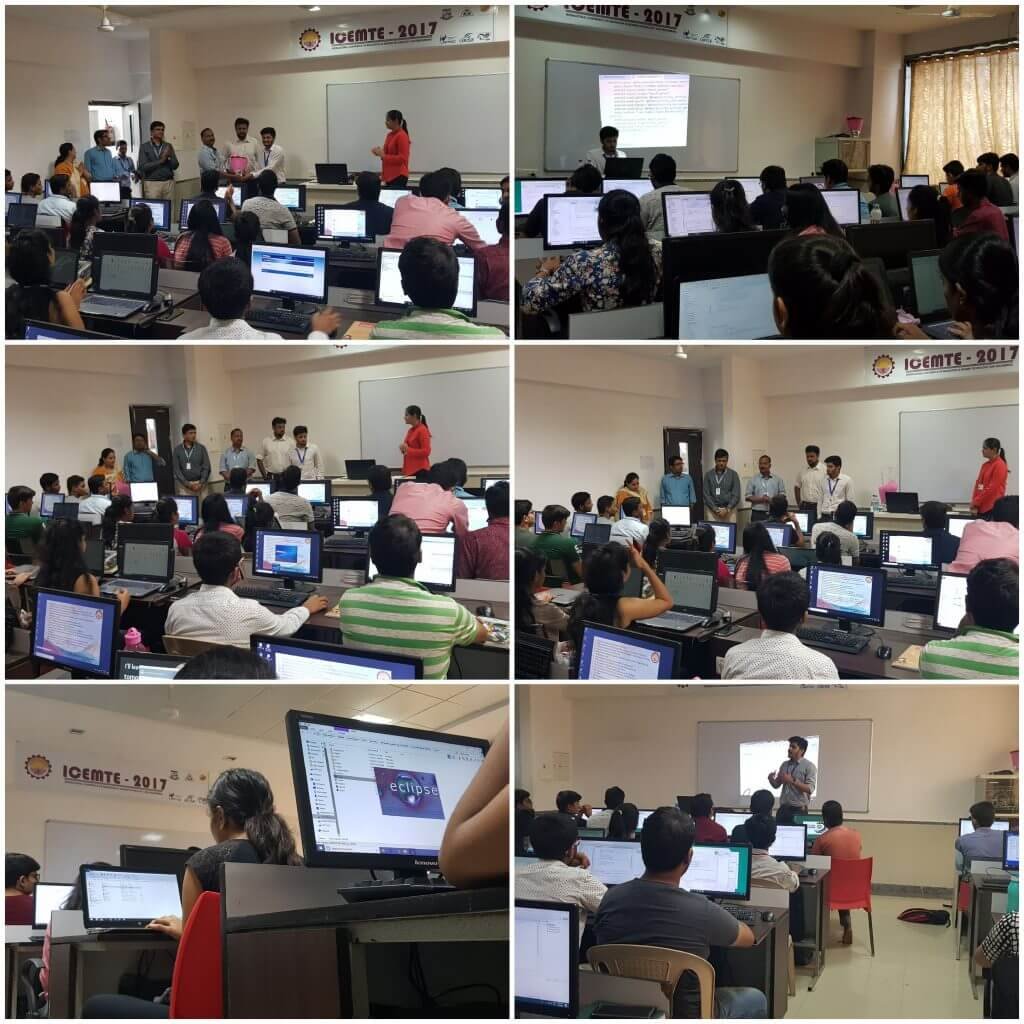
| Particulars | Description |
| Activity: | Technical |
| Sub Activity: | Workshop |
| Activity level: | Inter Department |
| Title: | Android App. Development |
| Organized by: | Department of Computer Engineering |
| Venue: | Lab No.305 ( 3rd floor ,SLRTCE) |
| Date: | 24-07-2018 And 26-07-2018 |
| Time: | 9.00 am To 5.00 pm. |
| Objective of event: |
|
| Expected Outcomes of event : |
|
| Targeted Participants : | T.E, S.E |
| Total Participants: | 43 |
| Speaker: | Mr. Dharmesh Koria.( Founder, Prako Technocratz) |
| List Of distinguished guest present during opening ceremony : | Dr.Vinayak Shinde (H.O.D of department of computer engineering). |
| List of distinguished guest present during closing ceremony: | Dr.Vinayak Shinde (H.O.D of department of computer engineering) |
| Content of the activity : |
|
| Methodology used: |
|
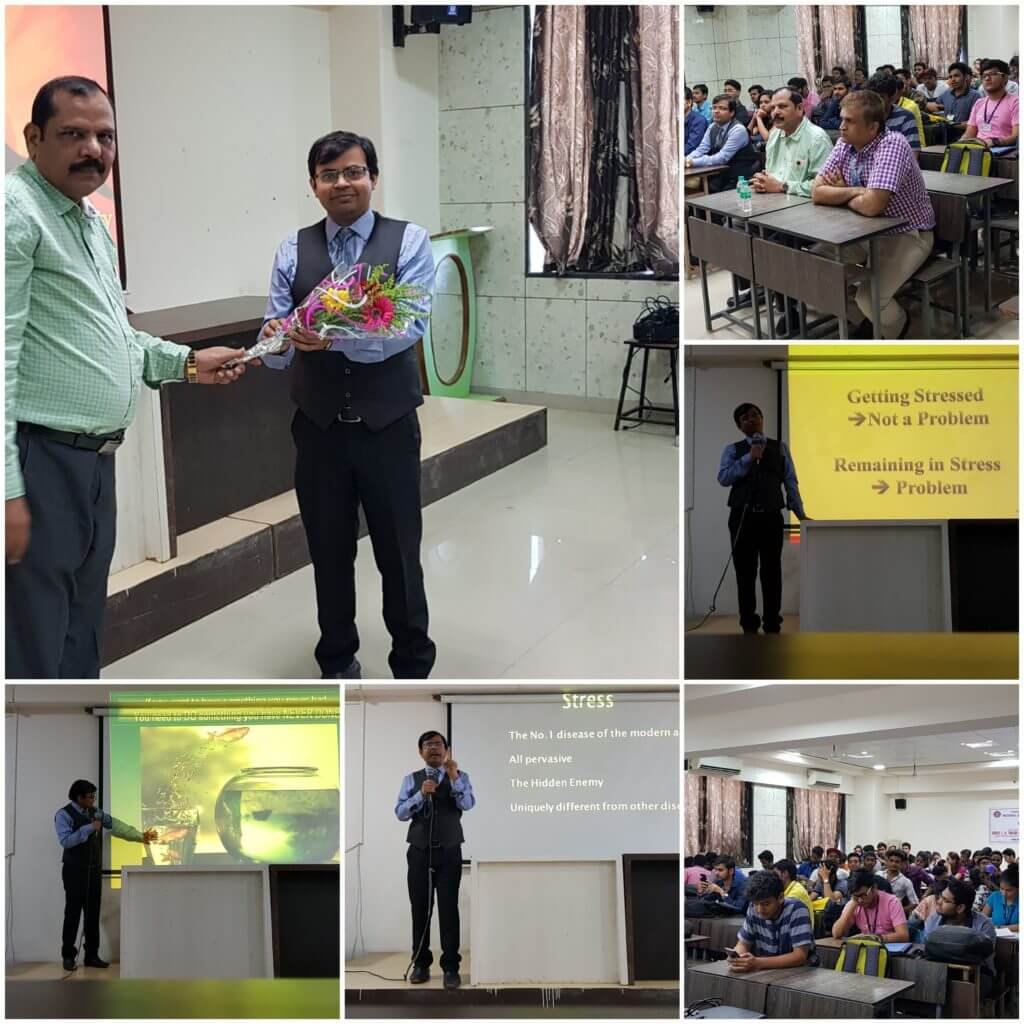
| Particulars | Description |
| Activity: | Non-Technical |
| Sub Activity: | Seminar |
| Activity level: | Inter College |
| Title: | Stress Management |
| Organized by: | Department of Computer Engineering |
| Venue: | 2nd floor ,SLRTCE |
| Date: | 23-03-2018 |
| Time: | 10.00 am Onwards. |
| Objective of event: |
|
| Targeted Participants : | First year, Second year, Third year students |
| List Of distinguished guest present during opening ceremony : | Dr.S Ram Reddy (Principal,SLRTCE), Prof. Pravin Jangid(Assistant Professor), Prof. Aabha Patil(Assistant Professor) |
| List Of distinguished guest present during opening ceremony : | Dr.S Ram Reddy (Principal,SLRTCE), Prof. Pravin Jangid(Assistant Professor),Prof. Aabha Patil(Assistant Professor) |
| Speaker: | Mr. Pradip Tiwari(Assistant Professor ,NMIMS) |
| Total Participants: | 82 |
| Content of the activity : | Different Technique of Stress Management |
| Methodology used: | PPT and Group Discussion |
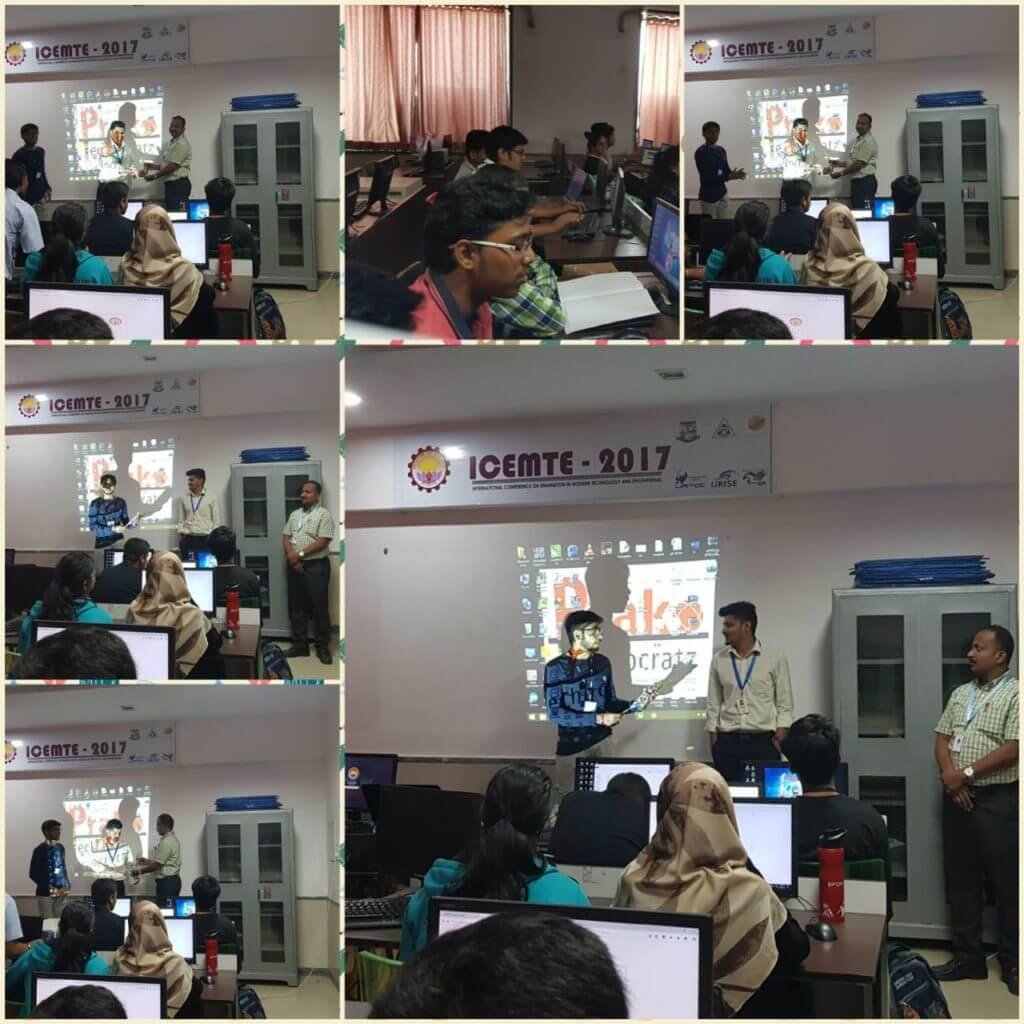
| Particulars | Description |
| Activity: | Technical |
| Sub Activity: | Workshop |
| Activity level: | Inter Department |
| Title: | Android App. Development. |
| Organized by: | Department of Computer Engineering |
| Venue: | Computer lab 311 ( 3rd floor ,Slrtce) |
| Date: | 02-02-2018 |
| Time: | 10.00 am Onwards. |
| Objective of event: |
|
| Expected Outcomes of event : | Students able to developed small android base application. |
| Targeted Participants : | T.E,S.E |
| Total Participants: | 31 |
| Speaker: | Mr.Dharmesh Koria. Founder, Prako Technocratz |
| List Of distinguished guest present during opening ceremony : | Dr.Vinayak Shinde (H.O.D of department of computer engineering). |
| List of distinguished guest present during closing ceremony: | Dr.Vinayak Shinde (H.O.D of department of computer engineering) |
| Content of the activity : | Session 1: Theory & Software Distribution
|
| Methodology used: |
|
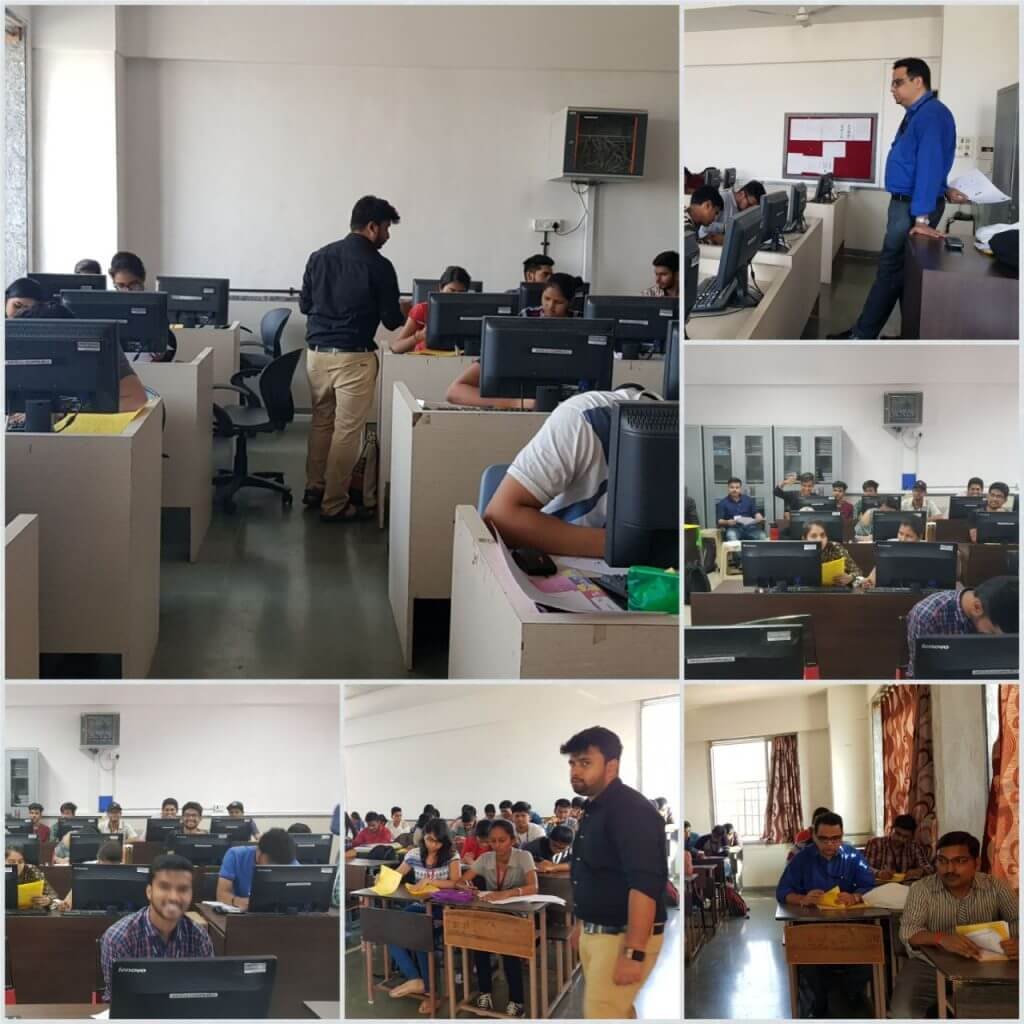
| Particulars | Description |
| Activity: | Non-Technical |
| Sub Activity: | Seminar |
| Activity level: | Inter College |
| Title: | Stress Management |
| Organized by: | Department of Computer Engineering |
| Venue: | 2nd floor ,SLRTCE |
| Date: | 23-03-2018 |
| Time: | 10.00 am Onwards. |
| Objective of event: |
|
| Targeted Participants : | First year, Second year, Third year students |
| List Of distinguished guest present during opening ceremony : | Dr.S Ram Reddy (Principal,SLRTCE), Prof. Pravin Jangid(Assistant Professor), Prof. Aabha Patil(Assistant Professor) |
| List Of distinguished guest present during opening ceremony : | Dr.S Ram Reddy (Principal,SLRTCE), Prof. Pravin Jangid(Assistant Professor),Prof. Aabha Patil(Assistant Professor) |
| Speaker: | Mr. Pradip Tiwari(Assistant Professor ,NMIMS) |
| Total Participants: | 82 |
| Content of the activity : | Different Technique of Stress Management |
| Methodology used: | PPT and Group Discussion |
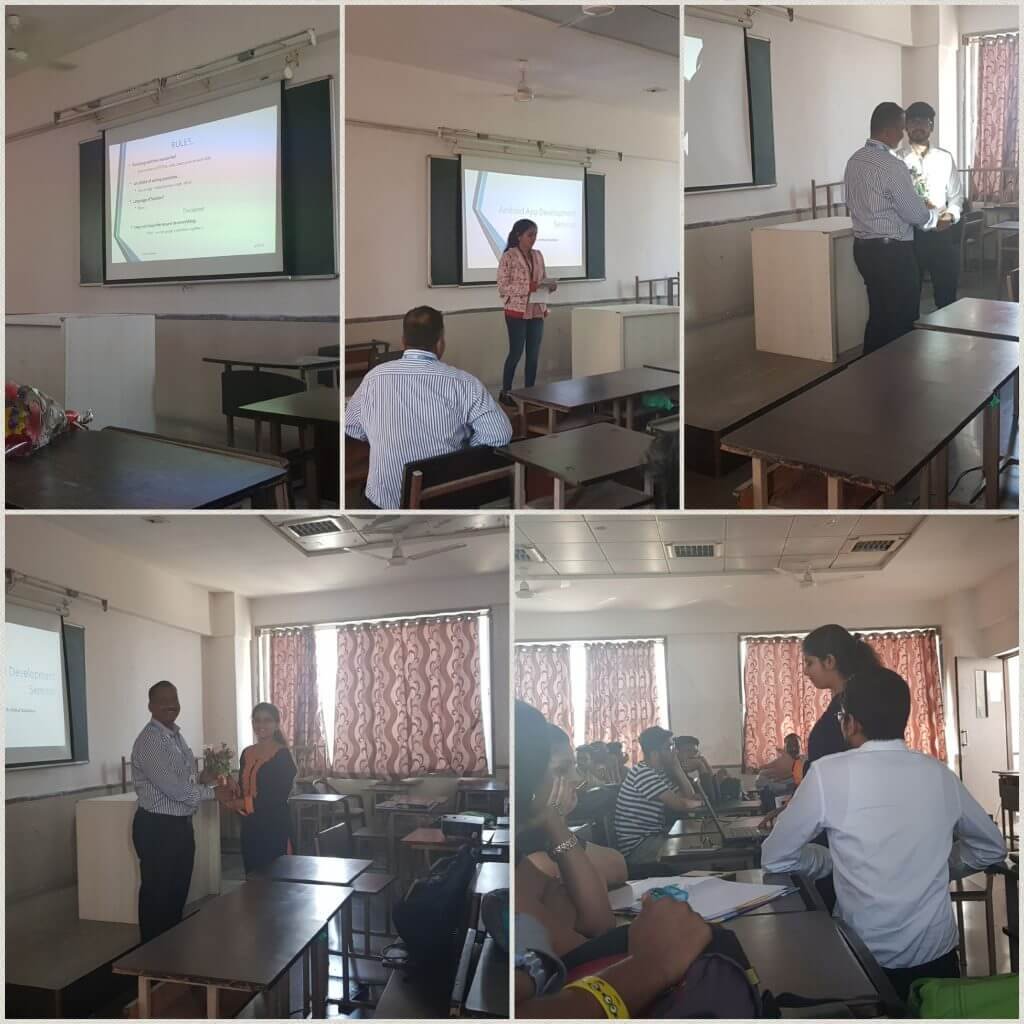
| Particulars | Description |
| Activity: | Technical |
| Sub Activity: | Seminar |
| Activity level: | Inter Department |
| Title: | Android App. Development. |
| Organized by: | Department of Computer Engineering |
| Venue: | Class room 313 ( 3rd floor ,Slrtce) |
| Date: | 23-01-2018 |
| Time: | 12.45 pm Onwards. |
| Objective of event: |
|
| Expected Outcomes of event : |
|
| Targeted Participants : | T.E,S.E |
| Total Participants: | 109 |
| Speaker: | Kishita Variya (B.E. in Computer Engineering, Mumbai University) |
| List Of distinguished guest present during opening ceremony : | Dr.Vinayak Shinde (H.O.D of department of computer engineering). |
| List of distinguished guest present during closing ceremony: | Dr.Vinayak Shinde (H.O.D of department of computer engineering) |
| Content of the activity : | Java Overview. Introduction to Android Application Structure |
| Methodology used: |
|
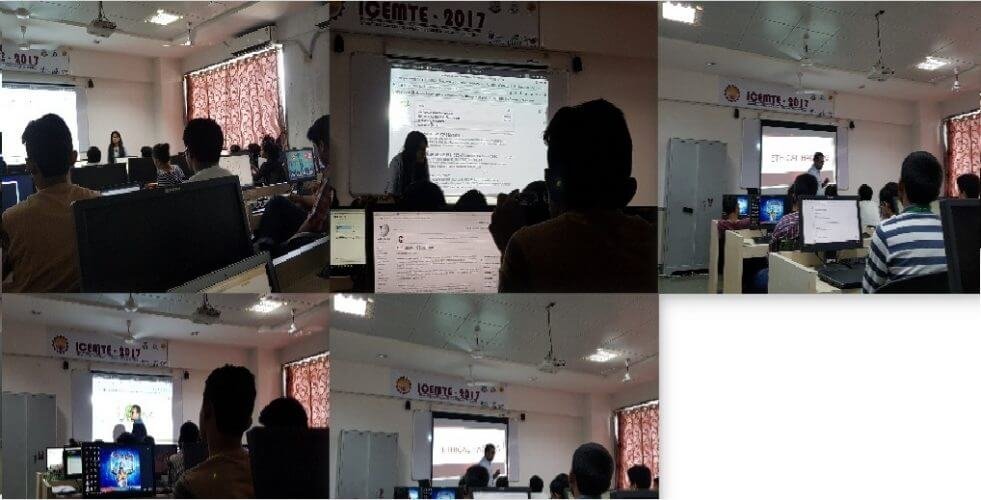
| COURSE OBJECTIVES COVERED BY THIS SEMINAR: |
|
| DESCRIPTION | Department of computer engineering has organized three days workshop on cyber and mobile security in collaboration with ATS Infotech Pvt. Limited . This workshop was conducted by industrial experts Mr.Jay and Ms. Shreya. 78 students from S.E.C.S, T.E.C.S, AND B.E.C.S. attended this workshop. In this workshop, students got hands-on experience of the various methodologies used for cybersecurity. Topics covered in the workshop included: why mobile and cyber security is important for any industry, market value of security professionals, how to start a study of security stepwise, certification is important in Cyber and mobile security. |
| OUTCOMES OF THIS SEMINAR: |
|
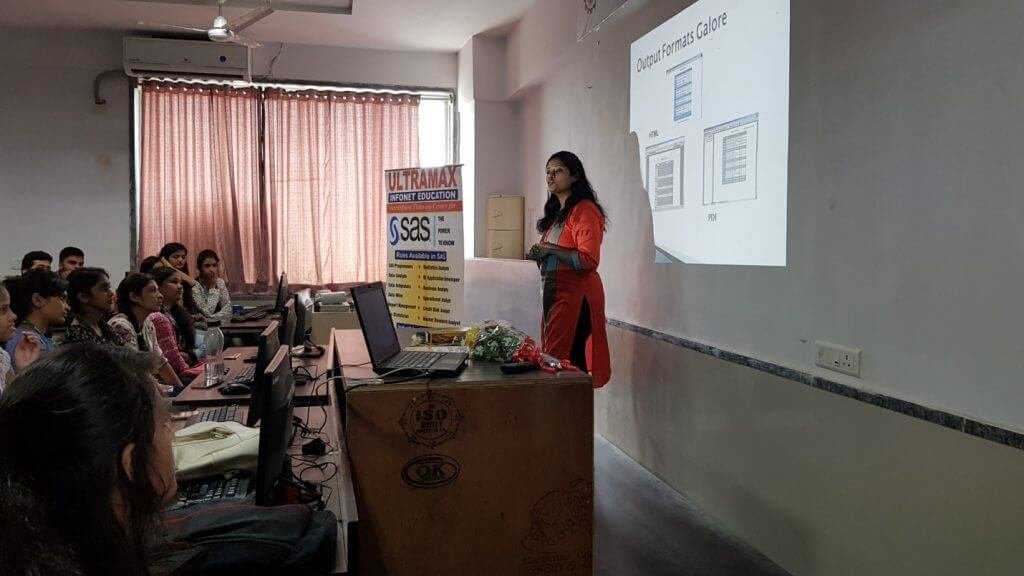
| Objectives covered by this seminar: |
|
| Description: | The seminar on “SAS technology ” was delivered by Ms. Supriya Katta 92 students of TE (CS), BE (CS) attended the seminar. Ms. Supriya gave an introduction about the SAS technology. She explained the use of this technology and the market demand for this technology. She also explained the various certification related to it and importance of certification. This seminar was very helpful to students of B.E they get to know new felid of technology. |
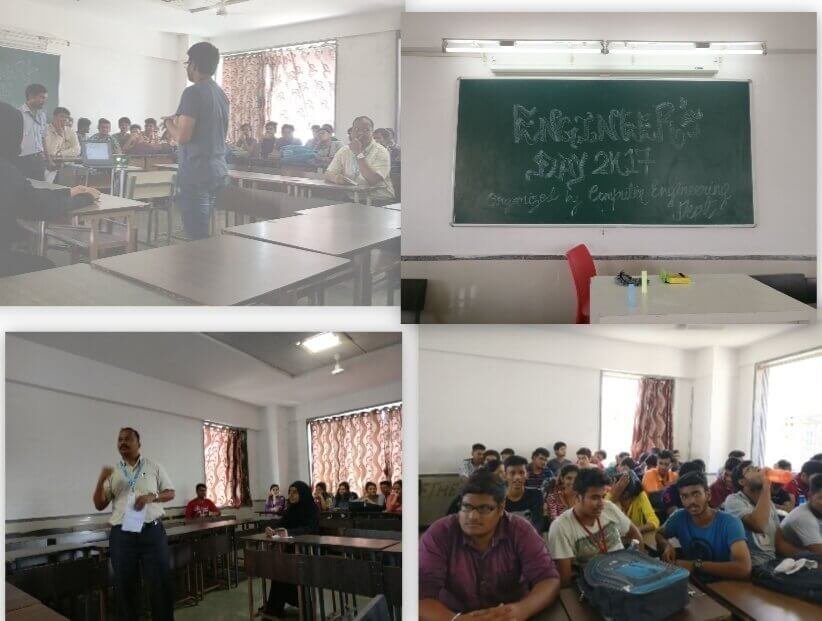
Computer Department has Celebrated “Engineer’s Day” On September 15th, 2017
The Department of computer engineering celebrated Engineer’s Day to mark the 156th birth anniversary of Sir Mokshagundam Visvesvarayya, one of the greatest engineer from India, a person behind many iconic constructions in India.
Year 2017 will mark the 49th anniversary of the Engineers Day in India.
To celebrate this day students of S.E C.S. and T.E.C.S. had organized various activities
like debate competition & Speech by students.
The event captivated the audience which left everyone mesmerized and also to think about their responsibilities towards the society and to question the unknown.
The event was organized successfully and left its imprints like an impression on a sandy shore.
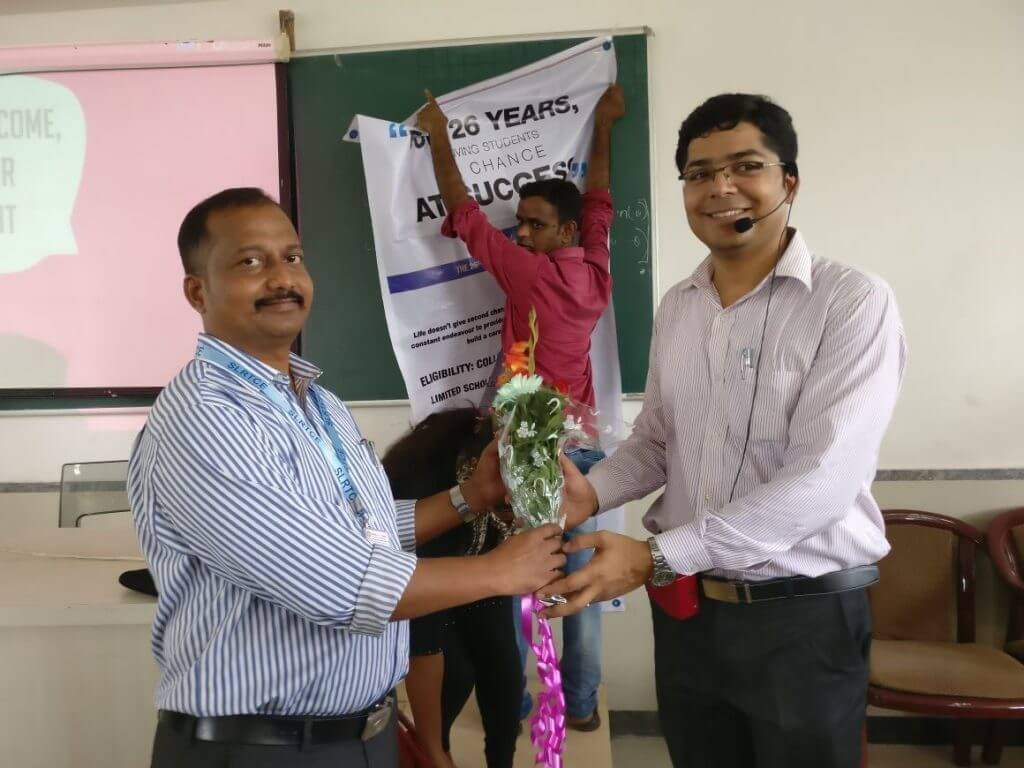
One day seminar on “THE FUTURE OF IT DIGITAL TRANSFORMATION” and NIIT’s 26th BHAVISHYAJYOTI Scholarship exam.” Was conducted for our students by Department of Computer Engineering on September 11th, 2017. The seminar was conducted by respected Speaker Mr. Akshay Rele NIIT, Vasai.
About 150 students From SE (CS) and TE (CS) attended this informative seminar. The speaker gave students an insight on the technologies and the current trends of the industry. Followed by the seminar, students appeared for the 26th BHAVISHYA JYOTI Scholarship exam.
The speaker enlisted the pros and cons of the various programming languages such as JavaScript, Python, and PHP etc. and explained the importance of these languages and justified why they are trending in the industry.
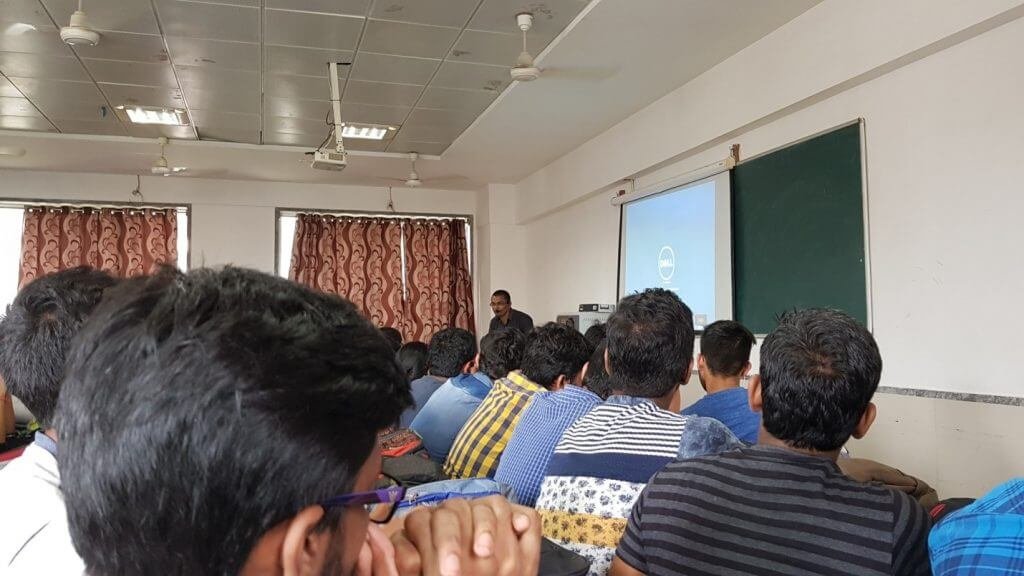
One day seminar on “Internet of Things:Myths and Reality” was conducted by Department of Information Technology on September 6th, 2017. The workshop was commenced by our respected Head of Department, Ms. DeepaliPatil in the presence of ourvalued Speaker Mr. Sachin Shukla, SGM Technologies Pune.
The Internet of things (IoT) is the network of physical devices, vehicles, and other items embedded with electronics, software, sensors, actuators, and network connectivity which enable these objects to collect and exchange data.
The IoT allows objects to be sensed or controlled remotely across existing network infrastructure, creating opportunities for more direct integration of the physical world into computer-based systems and resulting in improved efficiency, accuracy and economic benefit in addition to reduced human intervention
The seminar was an enriching experience for students regarding the Internet of Things. Subsequently a brief introduction of working of the technology a real-time demonstration as given by our speaker. Students received a hands-on experience on how to frame a structure for building any project using IoT. Active participation of students enabled the seminar to understand the components like sensors, actuators etc.
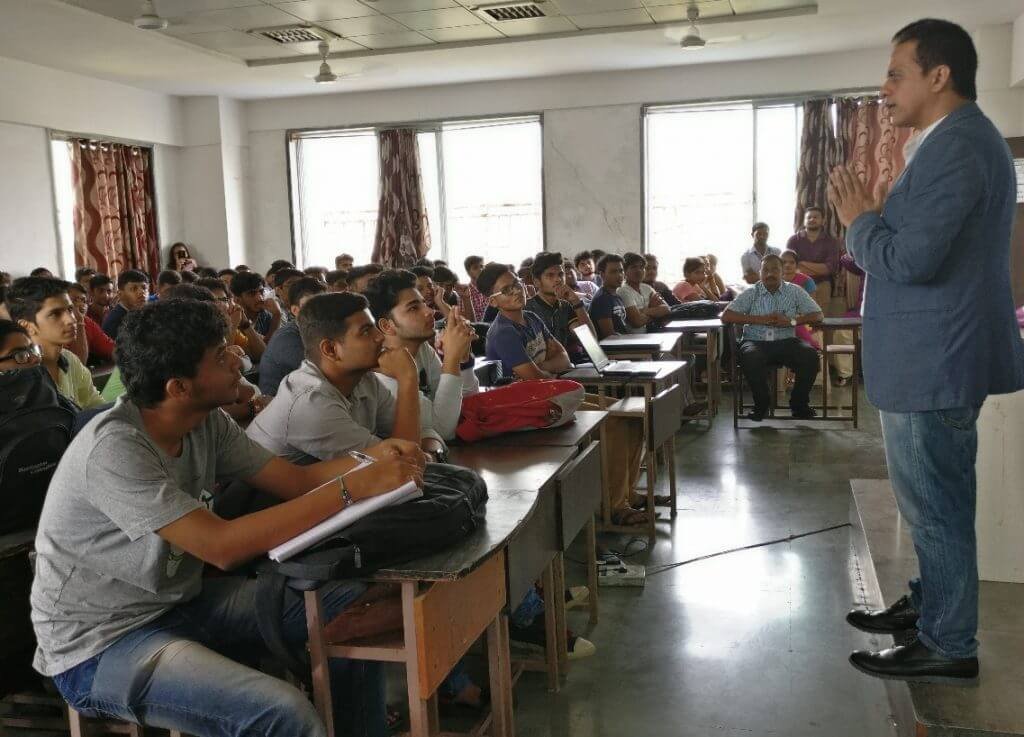
| COURSE OBJECTIVES COVERED BY THIS SEMINAR: |
|
| DESCRIPTION | Mr.Sandip Jethani, Director of ATS learning solution conducted the seminar on cybersecurity for students. He gave a brief introduction about several ongoing issues in security. He discussed different attacks that are made on various devices like computer systems, mobile phones, etc. He made students understand the criticality of the subject and its impact.This seminar covered every aspect of cybersecurity from hacking to technologies used to prevent from it. It also highlighted the importance of certification in cybersecurity and its need in the ever-growing industry. |
| MOTIVATION GIVEN: | Cyber risk is now firmly at the top of the international agenda. Cyber-security has always been a horizontal technology practice that’s roughly the same across all industry sectors. Some industries have different regulations, use cases or business processes that demand specific security controls, but overall every company needs things like firewalls, IDS/IPS, threat management gateways and antivirus software regardless.Along with the big and small ones, even start-ups are recruiting cyber security professionals. The demand for data security is being raised even by clients, apart from the companies’ own concern to protect critical data. Thus, the demand for cyber security engineers is growing exponentially. |
| OUTCOMES OF THIS SEMINAR: |
|
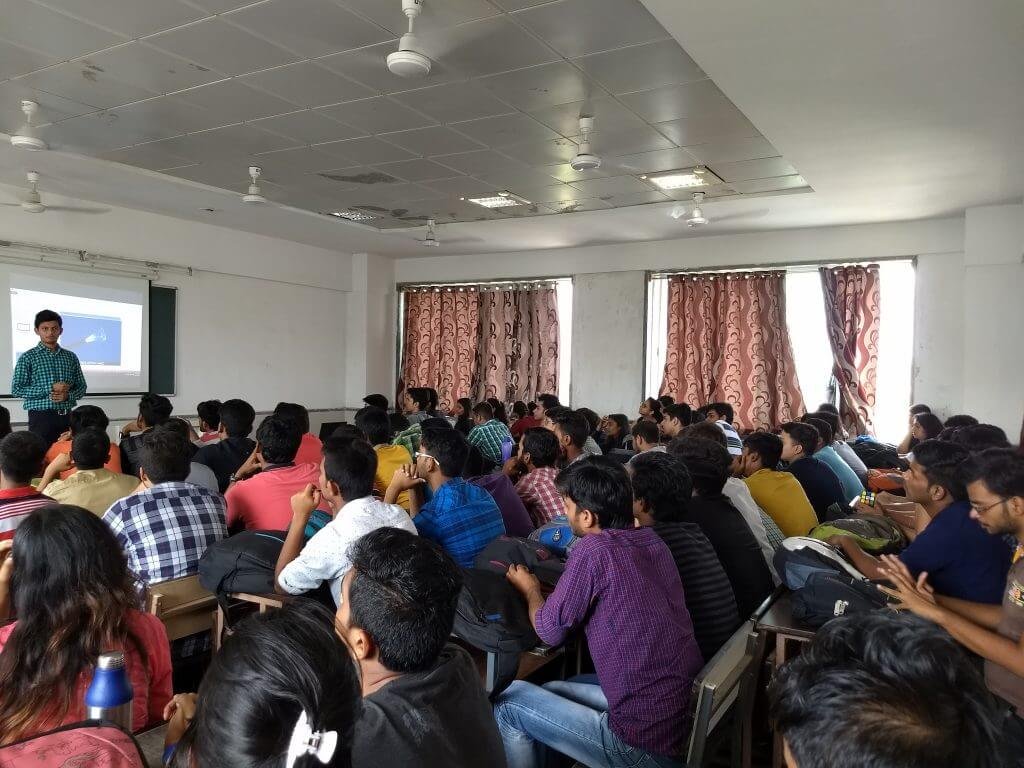
| COURSE OBJECTIVES COVERED BY THIS SEMINAR: |
|
| DESCRIPTION | Mr.Nikhil Belwate conducted the seminar on Advanced Networking. This seminar provided students with an overview of the concepts and fundamentals of data communication and computer networks. Topics covered in seminar included: data communication concepts and techniques in a layered network architecture, communications switching and routing, types of communication, network congestion, network topologies ,network configuration and management, network model components, layered network models (OSI reference model, TCP/IP networking architecture) and their protocols, various types of networks (LAN, MAN, WAN and Wireless networks) and their protocols. |
| MOTIVATION GIVEN: | Computer networks allow the user to access remote programs and remote databases either of the same organization or from other enterprises or public sources. Computer networks provide communication possibilities faster than other facilities. Because of these optimal information and communication possibilities, computer networks may increase the organizational learning rate, which many authors declare as the only fundamental advantage in competition. Computer networking is an ever-evolving field. Computer networkers and security professionals are the ones who make sure computer systems run smoothly. They can install operating systems, configure networks, back up servers, and manage network security. When users have trouble with their systems, these IT professionals are the ones who fix their problems. |
| OUTCOMES OF THIS SEMINAR: |
|

| COURSE OBJECTIVES COVERED BY THIS SEMINAR: |
|
| DESCRIPTION | Mr.Rahul Kannojiya had organized this seminar. In this seminar, he gave an introduction about currently running new technologies like JavaScript, WordPress, etc. He motivated students by giving motivational examples of entrepreneurs like Mark Zuckerberg, Elon Musk (God of entrepreneurs). He gave an introduction about how the human labor has been automated with the innovation in technologies for e.g.: Chabot which chats with the user. This seminar covered every aspect of technology from website designing to Android applications.He introduced us to various technologies like CSS,HTML, JavaScript, WordPress, BigData, .net Framework, etc. The engineering industry has a lot of future scope for technologies like MEAN Stack, .net Framework, BigData, etc. |
| Motivation given: | Few of his students developed their own Android games. He also motivated students to learn new technologies by giving motivational examples like how 1 of his junior friend created his own OS named as X-Distro and how the 18-year-old guy can earn huge amount by just exploring vulnerabilities of hacking in popular websites. The session was concluded with the interesting video of how the SpaceX company who was in loss earned huge profit by innovating their technology to land falcon back on the land that can be used again. With this innovation, the company earned a lot and made a huge profit. |
| OUTCOMES OF THIS SEMINAR: |
|

Seminar on “Journey in Computer Engineering as a student to a professional” was conducted by Department of Computer Engineering on January 27, 2017. The seminar was conducted by Mr. Kunal Pimparkhede who is working as a Project Manager at BNP Paribas India Solutions. He also had written two books one is Computer Programming with C++ published by Cambridge University Press and another one is Computer Programming-1 published by Tata Mc-Graw Hill.
The motto of the seminar was to make aware students about current industry scenario and skill requirements for the industry. Also, Students got insight on how they can transform themselves from being a student to a professional. Our students found it very informative and we got an overwhelming response from the students.
Computer Department had organized a seminar on “Internet of Things” on 16th March 2016.
COURSE OBJECTIVES COVERED BY THIS SEMINAR:
- Student’s exposure to the Internet of Things.
- What industries expect from engineers.
- How you can take most out of engineering education.
DESCRIPTION:
The Department of Computer Engineering had organized a seminar on “The Internet of Things” for S.E. (CMPN), T.E. (CMPN) and B.E. (CMPN) students under guidance of Mr. Narendra Shekokar
Total 152 students attended the seminar. In this seminar, how machine to machine connectivity is rapidly growing everywhere was discussed. Also, the business benefits for connected devices and assets for remote location connectivity are instantly cleared.
TOPICS COVERED
- The next evolution of internet
- How harnessing the data and real-time analysis
- Where to start?
- How large is the IoT market?
- What’s driving the IoT
- Live demo on IoT

The Department of Computer Engineering had organized the first round of “SEED IT IDOL” competition in collaboration with SEED InfoTech Ltd and Mumbai University on January 25, 2017. The Moto of this competition was to reward the knowledge of the students and make them aware about the job opportunities and skill requirement in the industry. The first round of the competition was a pen-paper test on C programming and computer fundamentals having 30 objective type questions to be solved in 30 minutes. 300 students from CS, IT and FE (EXTC, ETRX, CIVIL, MECH, CS, IT) participated in the competition. The second round of the competition will be held in Mumbai University.
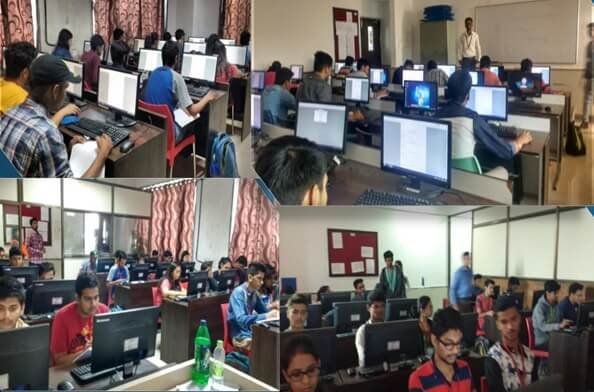
Our department took initiative again, to start the new chapter for students development i.e. Code-Yantra. Code-Yantra is a student’s programming committee which aims at promoting and inspiring students to get involved with competitive programming. We had conducted an event to select members of the committee. Students from various branches had participated in the event. The selection process was divided into 3 rounds as follows:
Round 1: Aptitude/Logic based online test for the F.E students and a basic programming based test for the S.E students. A total participation of around 100 students was observed for the round. This round was conducted on 18th Jan 2017.
Round 2: Based on round 1, the number of students were shortlisted to around half and the selected students were asked to give a similar online test. The second round was conducted on 31st Jan 2017.
Round 3: Based on the results of the previous round, 15 students were selected from each class for a final interview. 6 students were selected from each year. The interview was conducted on 4th Feb 2017.
This committee is organized by Mehul Dholiya with Shweta Pandey, Abdullah Khan, and Akhil Balakrishnan.
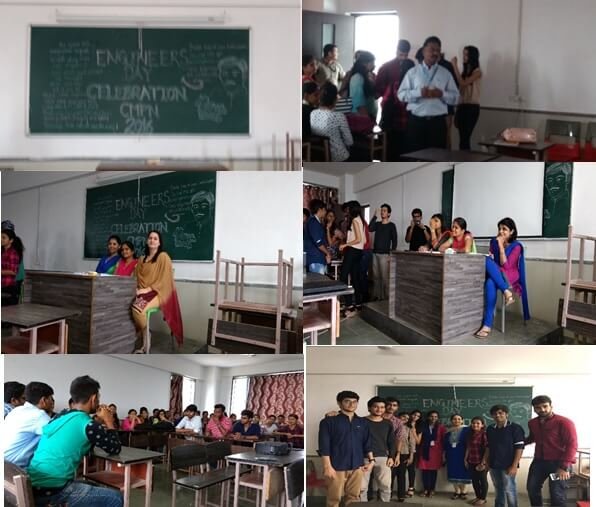
Engineers are people who solve problems and focus on making things work more efficiently and effectively. We celebrate engineer’s day to mark the birth anniversary of Sir M Vishweshwaraiah. This year we celebrated this day by arranging to competition for students i.e. DEBET competition and “MARKETING “Competition. We got very positive response from students.

As every year, our students celebrate the teacher’s day to wish their teachers. It is the occasion to remember teachers and applaud their contribution towards the overall development of the student. On the eve of Teachers’ Day, Career India has come out with a video which says about the bonding between Teachers’ and Students. Our students also celebrated Teachers day for all their teachers. We always say that Teachers plays very important role in student’s career and this statement was proven by our students.
| COURSE OBJECTIVES COVERED BY THIS SEMINAR: |
|
| DESCRIPTION | Dr. J.W.Bakal conducted the seminar on Research Methodology. 100 students of SE(CS) and TE(CS) attended the seminar. This seminar provided students with an overview of the various research methodologies. Topics covered in the seminar included: why research is important for an engineer, how research is helpful to increase knowledge, how to start research stepwise, how to select the research topic and why documentation of research work is important and needed. |
| OUTCOMES OF THIS SEMINAR: |
|

Guest Lecture on “ERP & CRM with Live Demo” was conducted by Department of Computer Engineering was conducted on March 22, 2015.
All the students received detailed information on Enterprise Resource Planning (ERP) and Customer Relationship Management (CRM) from our honorable speaker, Mr. Shashank S. Rameshwar, Manager- Business Development, Pegasys Information Technologies.
The significance and importance of ERP and CRM systems in the business world were highlighted in the lecture. Also, the implementation methodology of CRM and ERP was explained with the help of demonstration. We got an overwhelming response from the students.
Department of Computer Engineering had organized a very successful seminar on Project Management on 11th March 2016. Students from SE(CS) and BE(CS) attended the seminar.
All the students got detailed knowledge on industry perspectives of Project management from our honorable speaker,
Mr. Vivek Jain (Head Project Manager, LNT) and
Mrs. Shiba Jain (Project Manager in General Mills)
The detailed description about software engineering methodologies followed in the industry along with agile development was explained during the seminar. The participants found it very informative and registered a feedback showing satisfaction with the overall experience.

The Department of Computer Engineering had organized the first round of “SEED IT IDOL” competition in collaboration with SEED InfoTech Ltd and Mumbai University on January 27, 2016. The Moto of this competition was to reward the knowledge of the students and make them aware about the job opportunities and skill requirement in the industry. The first round of the competition was a pen-paper test on C programming and computer fundamentals having 30 objective type questions to be solved in 30 minutes. 130 students from CS and IT participated in the competition. Students are selected for the second round of the competition to be held at University of Mumbai.

One day workshop on “Internet of Things” was conducted by Department of Computer Engineering on October 03, 2015. The workshop was inaugurated by the honorable Principal, Dr. S Ram Reddy.
IoT i.e. Internet of Things is an emerging concept in the field of networking. 39 students from SE, TE, and ME attended this informative workshop. The participants received a detailed knowledge on IoT from our honorable speakers including,
Mr. Sachin Sadare, Business Development Manager, L&T Infotech
Mr. Jitendra Shenoy, Senior Architect, L&T Infotech
Mr. Yogesh Pingle, Asst. Professor, VCET
Mr. Sachin Sadare explained the overall concept of IoT and how it has emerged. Mr. Jitendra Shenoy explained the networking concept and all technical aspects related to IoT and Mr. Yogesh Pingle explained the applications of IoT.
The participants got the detailed knowledge about the basic concepts of IoT, network protocols used in IoT and how this internet enabled network can change the way people live, behave and communicate. The participants found it very informative and registered feedback showing the satisfaction with the overall experience.
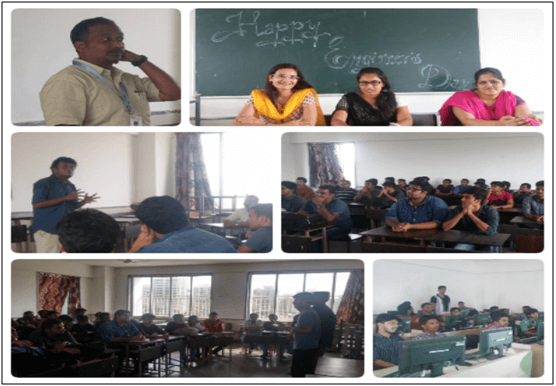
Engineers operate the world and provide technology to the society. To identify the great
work done by our hard-working engineers each year 15th September is celebrated as Engineers’ Day remembering the birthday of Sir Mokshagundam Visvesvaraya, recognizing his contributions in the field of engineering in India.
This year Shree L. R. Tiwari College of Engineering, which has always proved itself in providing efficient technocrats to the society, acknowledged the work of this great engineer by celebrating this day jubilantly. The professors and students of Computer Engineering Department gathered in the classroom and discussed the importance of entrepreneurship for engineers in today’s era. It was then followed by “Why Should I Pay”, a social competition to elaborate the necessity and duty of the engineers-to-be for the country. Followed by that was the Online Quiz competition for technical G.K. The event captivated the audience which left everyone mesmerized and also to think about their responsibilities towards the society and to question the unknown.
The event was organized successfully and left its imprints like an impression on a sandy shore. It gave an opportunity to everyone to remember and cherish the works of Sir Visvesvaraya as he once said: “Remember, your work may be only to sweep a railway crossing, but it is your duty to keep it so clean that no other crossing in the world is as clean as yours.
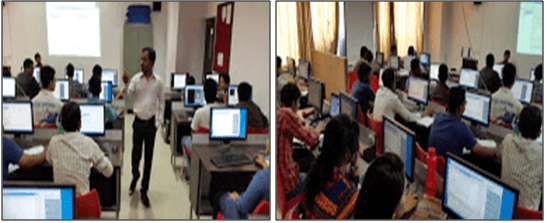
Two-day workshop on “Android Application Development” was conducted by Department of Computer Engineering between March 26, 2015, and March 27, 2015. The workshop was inaugurated by the honorable Principal, Dr. S Ram Reddy.
28 students of SE, TE, BE from CS, IT, ET and EX attended this informative workshop. The participants received a practical introduction to Android Development fundamentals from our honorable speaker,
Mr. Sunny Singhal, Freelance Corporate Trainer and Software Developer.
Various Android-based concepts including User interface Designing, SQLite Programming, and Deployment of App on play store etc. were covered during the workshop. We got an overwhelming response from all the participants. They highly appreciated the event and found it very informative.
The guest lecture on “Enterprise Resource Planning” was conducted by Department of Computer Engineering on March 27, 2015. All the students received detailed information on Enterprise Resource Planning (ERP), Customer Relationship Management (CRM) and Supply Chain Management (SCM) from our honorable speaker,
Mr. Shashank S. Rameshwar, Functional Consultant MS, Dynamics NAV.
The significance and importance of ERP, CRM and SCM systems in the business world were highlighted in the lecture. Also, the implementation methodology of SCM, CRM and ERP were explained with the help of demonstration. We got an overwhelming response from the students.
| COURSE OBJECTIVES COVERED BY THIS SEMINAR: |
|
| DESCRIPTION: | The seminar on “STRESS MANAGEMENT “was delivered by Mr. Pradeep.Around80 students attended the seminar.MR. Pradeep gave an introduction about currently running new research considers early and contemporary studies on the nature of stress at work. It affects on health and way in which such knowledge is applied in attempts to manage the problem. It discusses the conceptual frameworks implied in the practice of stress management at work and in health safety and legislation. In particular, it focuses on the utility of control cycle and problem-solving approaches to the management of stress at work. |
| MOTIVATION GIVEN: | After the seminar, many students came together and listed their causes of stress and MR. Pradeep came up with some effective solutions. It helped them a lot to manage in their day to day life activities. |
| OUTCOMES OF THIS SEMINAR: |
|
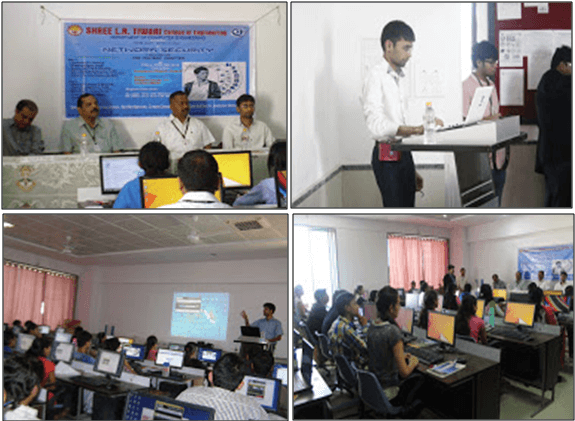
Two-day workshop on “Network Security” was conducted by Department of Computer Engineering between February 9, 2015, and February 10, 2015. The workshop was inaugurated by the honorable Principal, Dr. S Ram Reddy.
35 students of SE, TE, BE from CS, IT, ET and EX attended the workshop. Participants received a detailed knowledge on Cybercrimes and Computer Forensic from our honorable speaker,
Mr. Sachin Dedhia, SkyNetSecure, Cybercrime investigation and ethical hacking services.
All the participants got knowledge on the basic concepts of Computer Forensics, Different types of cybercrimes and related cyber laws. Also various measures of ethical hacking were discussed during the workshop. The participants found it very informative and registered feedback showing satisfaction with the overall experience.
| Particulars | Description |
| Activity: | Non-Technical |
| Sub Activity: | Seminar |
| Activity level: | Inter Department |
| Title: | Music act like supplementary medicine |
| Organized by: | Department of Computer Engineering |
| Venue: | Seminar hall 311 ( 2nd floor ,Slrtce) |
| Date: | 03-02-2015 |
| Time: | 10.00 am Onwards. |
| Objective of event: |
|
| Expected Outcomes of event : |
|
| Targeted Participants : | T.E,S.E |
| Total Participants: | 61 |
| Speaker: | Prof.Yogesh Pingle Assistant professor VCET |
| List Of distinguished guest present during opening ceremony : | Prof.Vinayak Shinde (H.O.D of department of computer engineering). |
| List of distinguished guest present during closing ceremony: | Prof.Vinayak Shinde (H.O.D of department of computer engineering) |
| Methodology used: |
|
| Particulars | Description |
| Activity: | Technical |
| Sub Activity: | Seminar |
| Activity level: | Inter Department |
| Title: | IOT in music therapy. |
| Organized by: | Department of Computer Engineering |
| Venue: | Seminar hall ( 2nd floor ,Slrtce) |
| Date: | 12-08-2015 |
| Time: | 12.00 am Onwards. |
| Objective of event: |
|
| Expected Outcomes of event : | Students get to know about use of IOT in music industry |
| Targeted Participants : | T.E,B.E |
| Total Participants: | 70 |
| Speaker: | Prof Yogesh Pingle. Assistant Professor ,VCET |
| List Of distinguished guest present during opening ceremony : | Prof.Vinayak Shinde (H.O.D of department of computer engineering). |
| List of distinguished guest present during closing ceremony: | Prof.Vinayak Shinde (H.O.D of department of computer engineering) |
| Methodology used: |
|
| Particulars | Description |
| Activity: | Technical |
| Sub Activity: | Seminar |
| Activity level: | Inter Department |
| Title: | Music for health care. |
| Organized by: | Department of Computer Engineering |
| Venue: | Seminar hall ( 2nd floor ,SLRTCE) |
| Date: | 8-03-2016 |
| Time: | 10.00 am Onwards. |
| Objective of event: | 1. To understand importance of health. 2. To create awareness about ,how music can be helpful in health management . |
| Expected Outcomes of event : | Students got the very good musical experience . |
| Targeted Participants : | B.E,T.E,S.E |
| Total Participants: | 86 |
| Speaker: | Prof Yogesh Pingle. Assistant Professor ,VCET |
| List Of distinguished guest present during opening ceremony : | Prof.Vinayak Shinde (H.O.D of department of computer engineering). |
| List of distinguished guest present during closing ceremony: | Prof.Vinayak Shinde (H.O.D of department of computer engineering) |
| Methodology used: | 1) Power point presentation. |
| Particulars | Description |
| Activity: | Technical |
| Sub Activity: | Seminar |
| Activity level: | Inter Department |
| Title: | Big Data and IOT |
| Organized by: | Department of Computer Engineering |
| Venue: | Seminar hall ( 2nd floor ,Slrtce) |
| Date: | 6-08-2013 |
| Time: | 12.00 am Onwards. |
| Objective of event: | 1. To understand relation of IOT and big data. 2. To create awareness about latest research in big data and IOT. |
| Expected Outcomes of event : | Students got the brief knowledge of big data and IOT |
| Targeted Participants : | T.E,S.E |
| Total Participants: | 56 |
| Speaker: | Prof Yogesh Pingle. Assistant Professor ,VCET |
| List Of distinguished guest present during opening ceremony : | Prof.Vinayak Shinde (H.O.D of department of computer engineering). |
| List of distinguished guest present during closing ceremony: | Prof.Vinayak Shinde (H.O.D of department of computer engineering) |
| Methodology used: |
|
| Particulars | Description |
| Activity: | Technical |
| Sub Activity: | Seminar |
| Activity level: | Inter Department |
| Title: | Analytics Of AI |
| Organized by: | Department of Computer Engineering |
| Venue: | Seminar hall ( 2nd floor ,Slrtce) |
| Date: | 24-01-2014 |
| Time: | 10.15 am Onwards. |
| Objective of event: | 1) Introduction to AI 2) Impact of AI On today’s word. |
| Expected Outcomes of event : |
|
| Targeted Participants ; | B.E,T.E,S.E |
| Total Participants: | 86 |
| Speaker: | Mr.Omkar Phadnis (Managing director, Accenture analytics) |
| List Of distinguished guest present during opening ceremony : | Dr. Ram Reddy (Principal, SLRTCE) ,Dr.Vinayak Shinde (H.O.D of department of computer engineering). |
| List of distinguished guest present during closing ceremony: | Dr.Vinayak Shinde (H.O.D of department of computer engineering) |
| Content of the activity : |
|
| Methodology used: |
|

